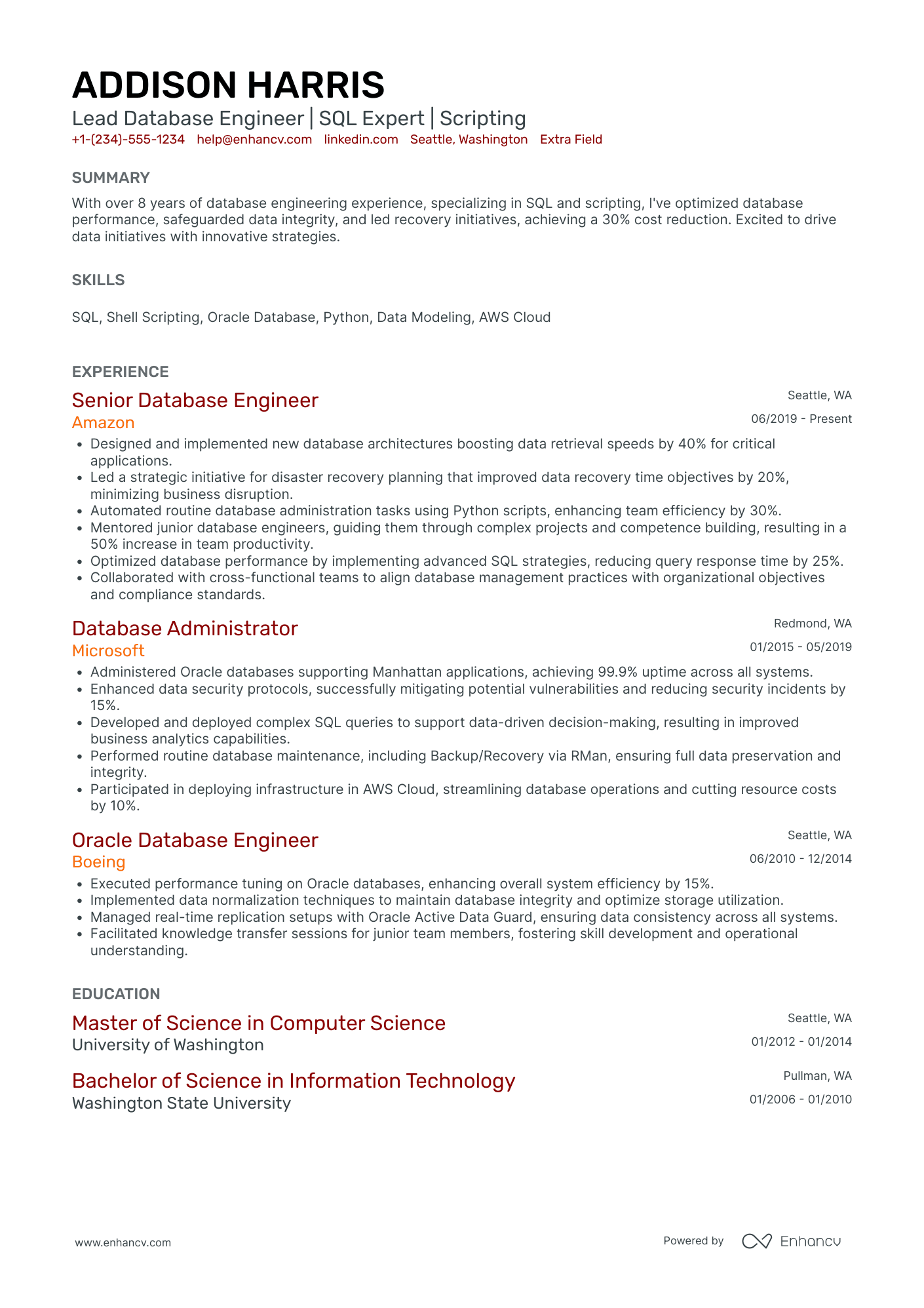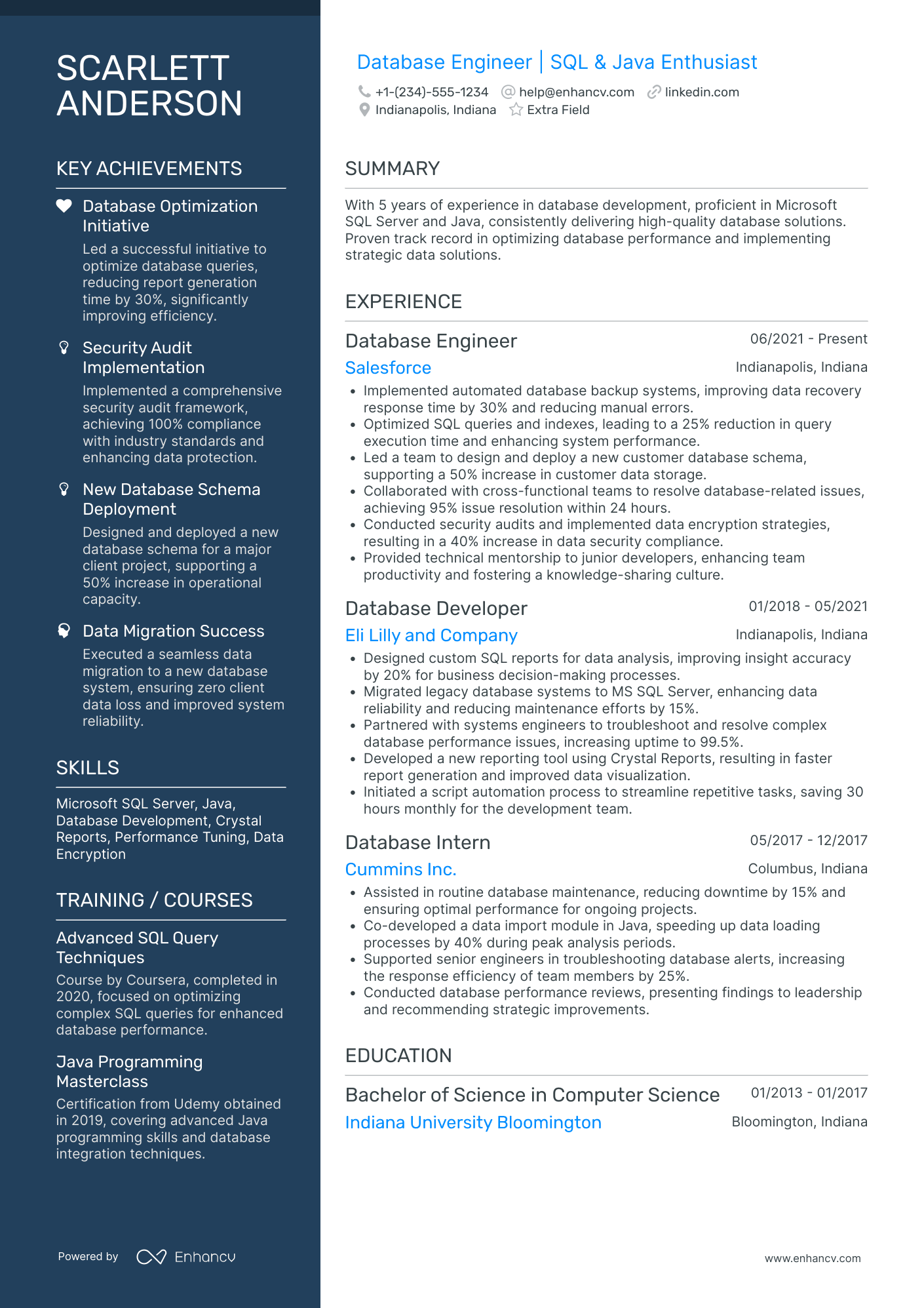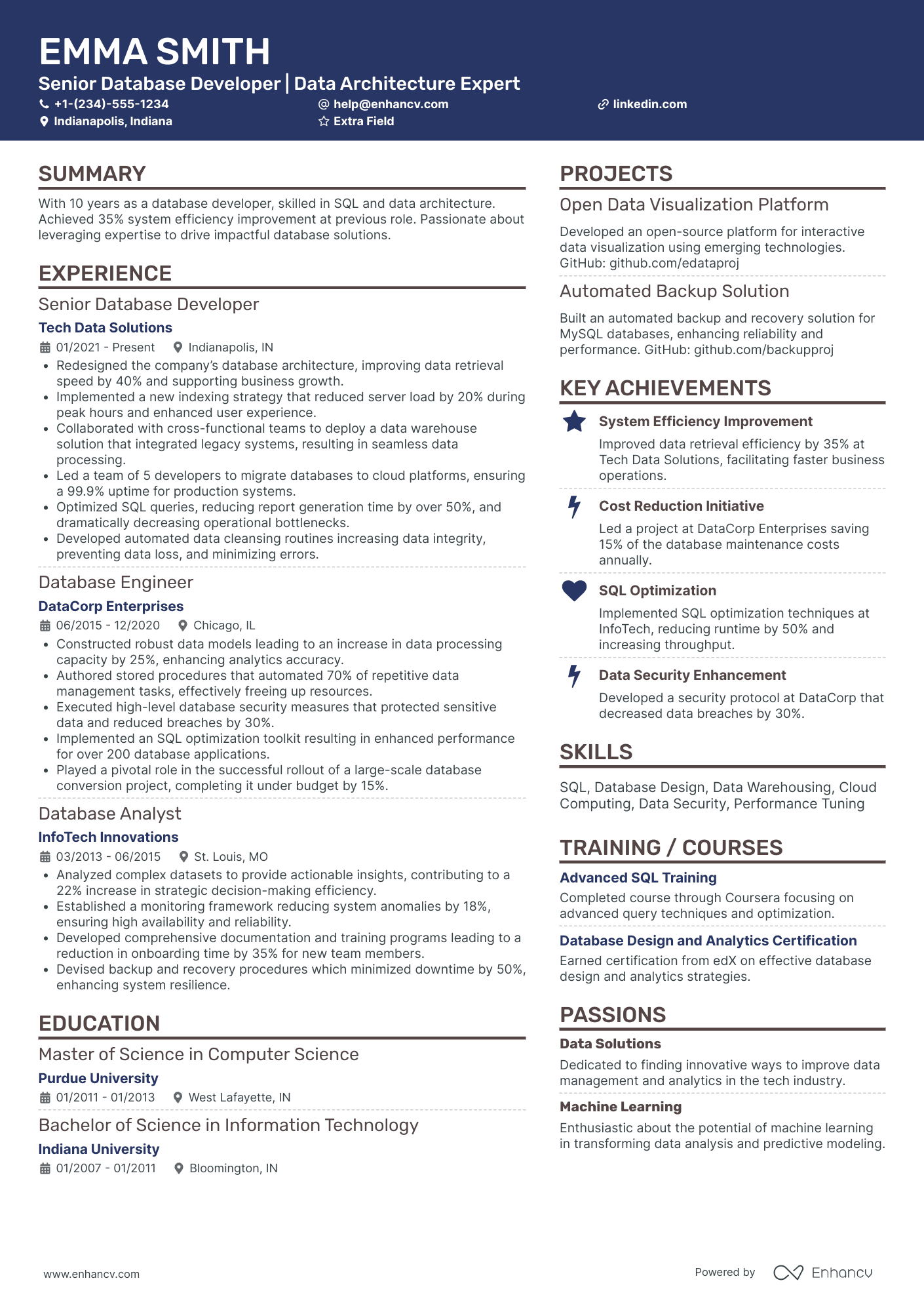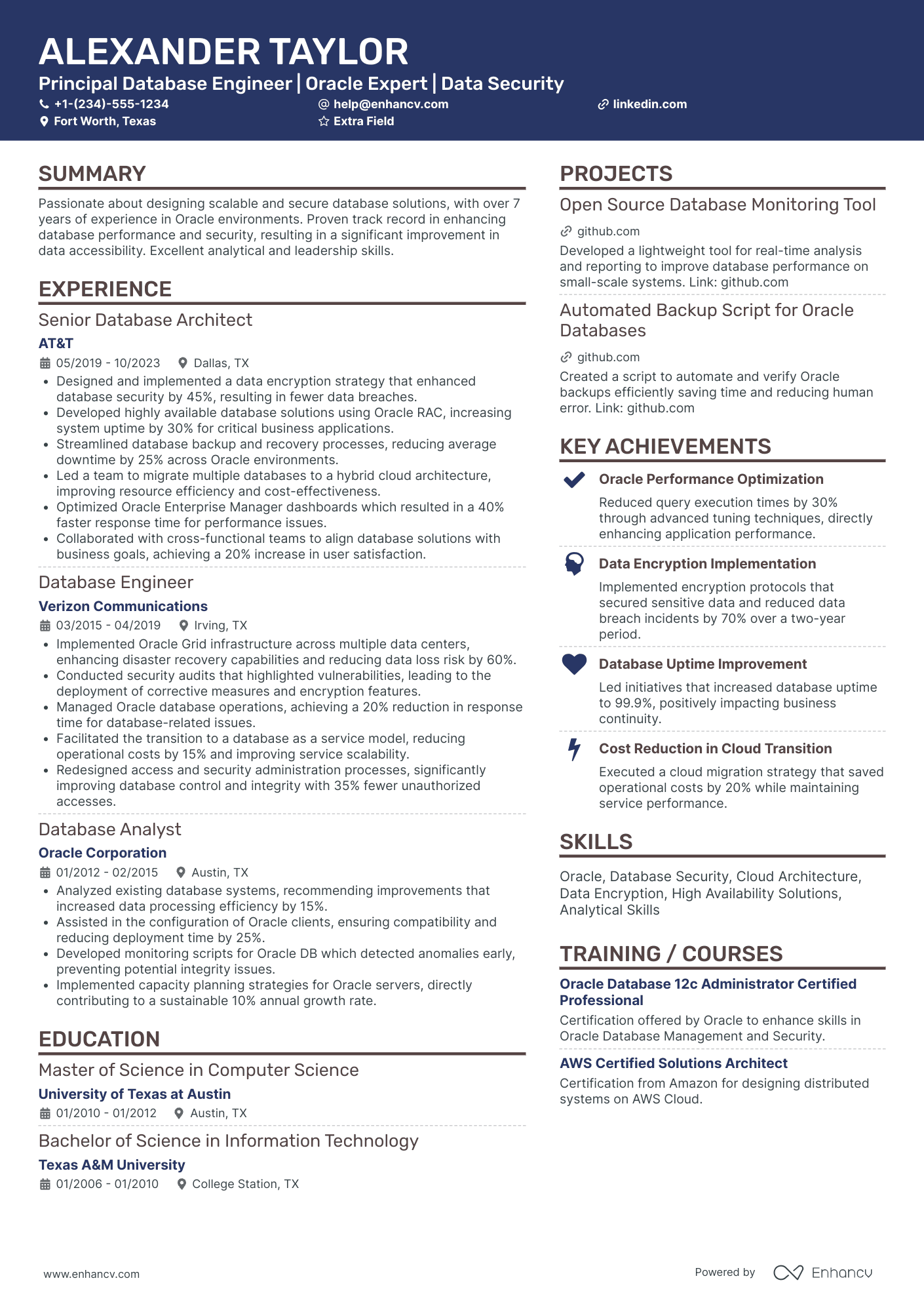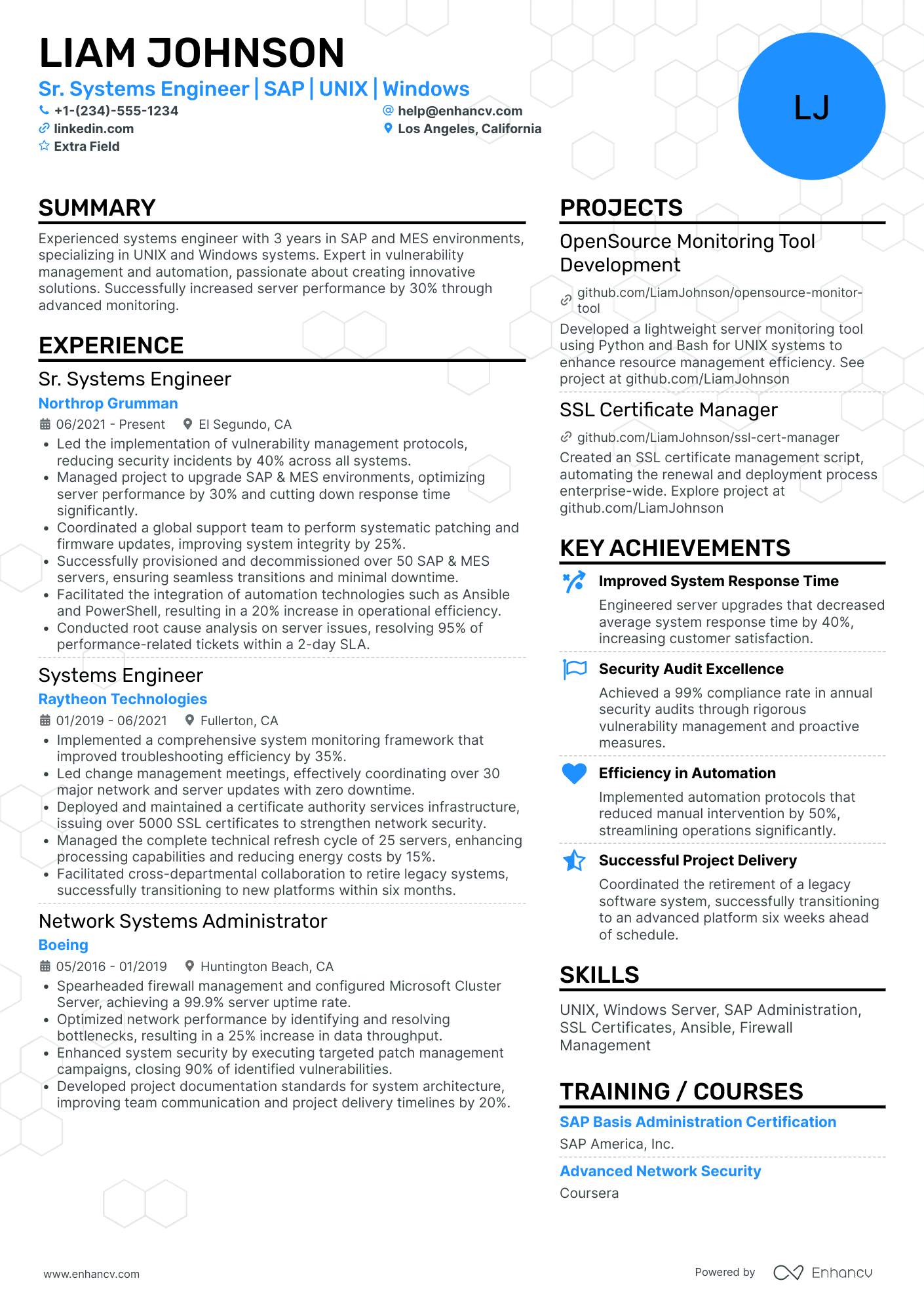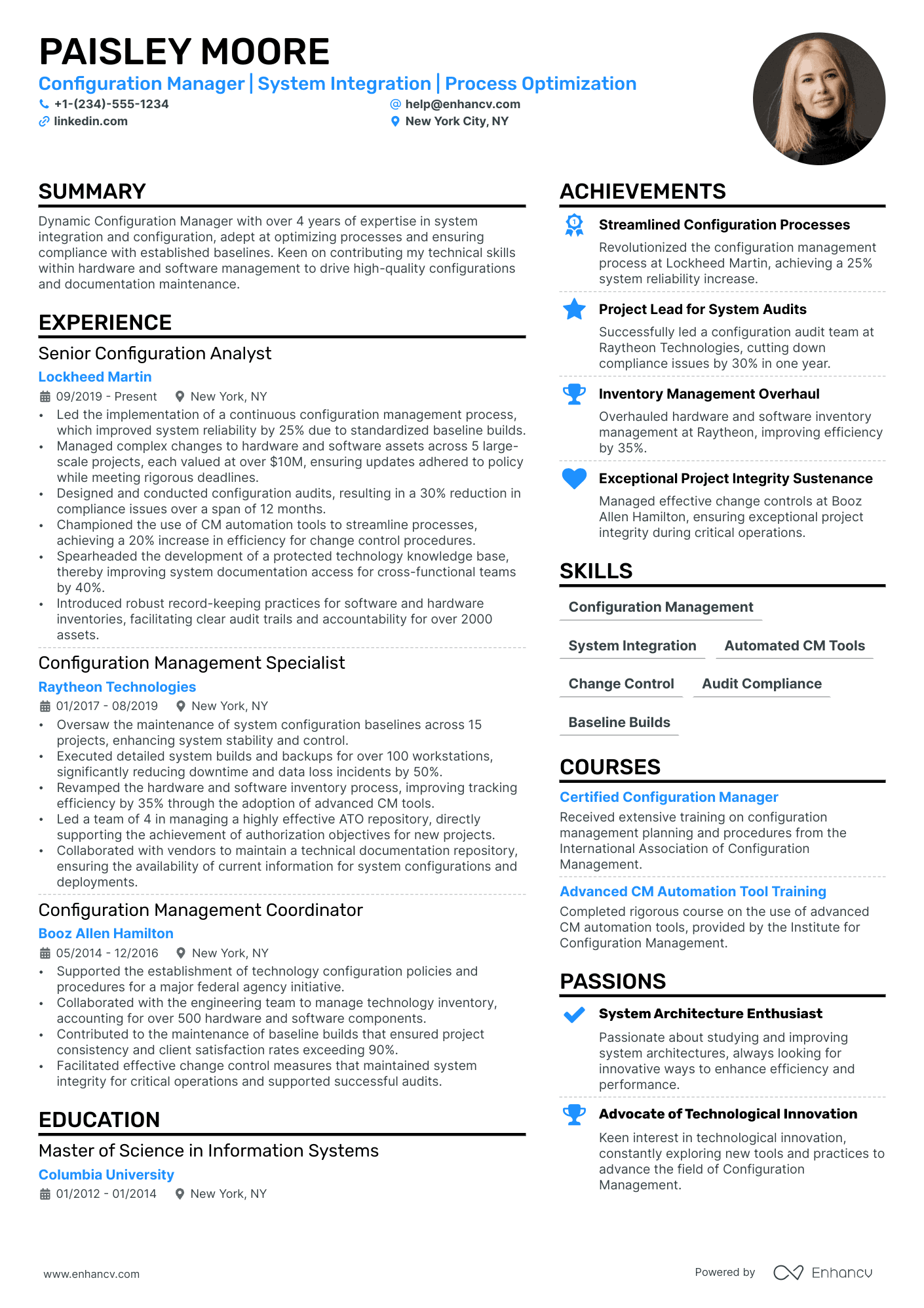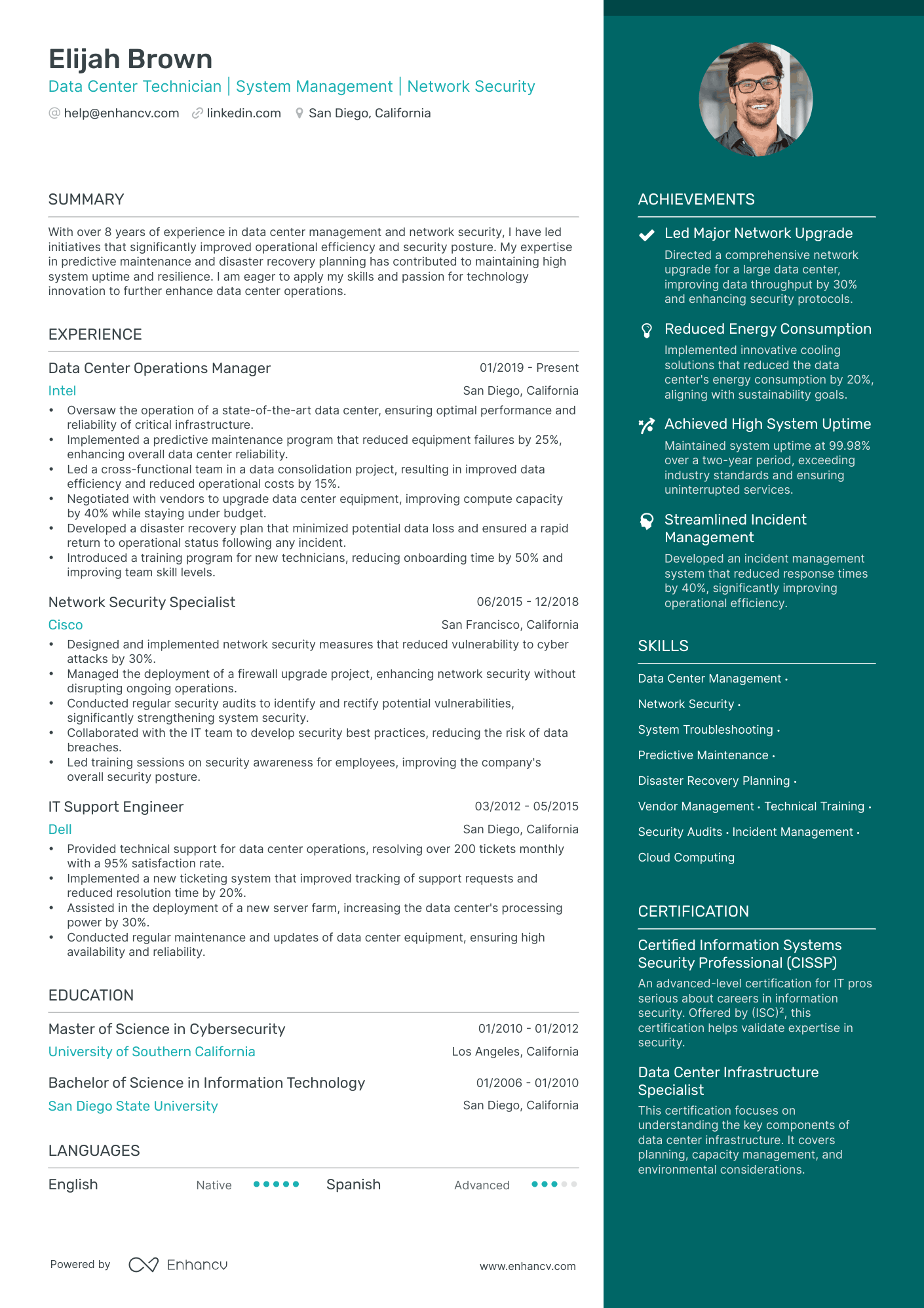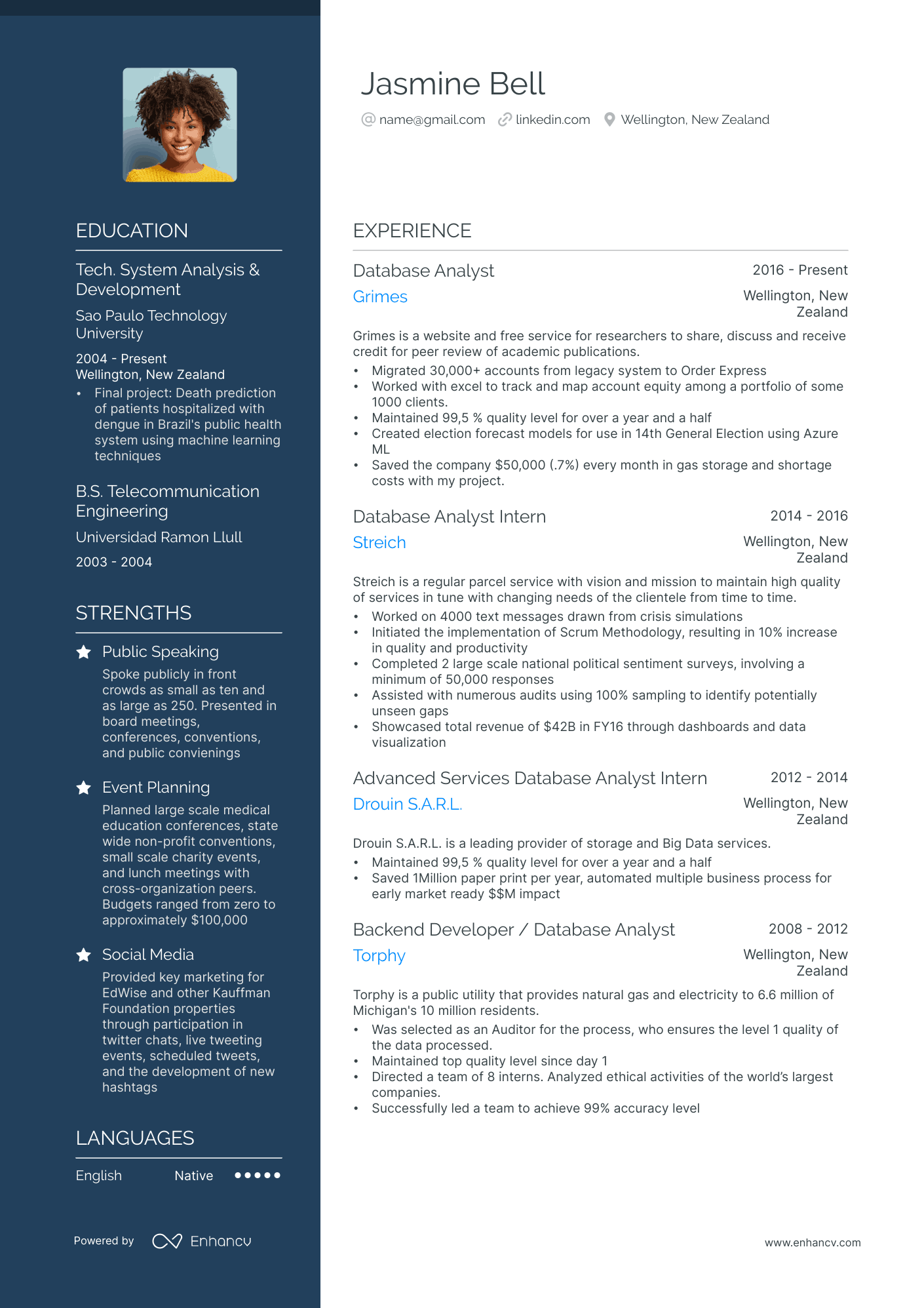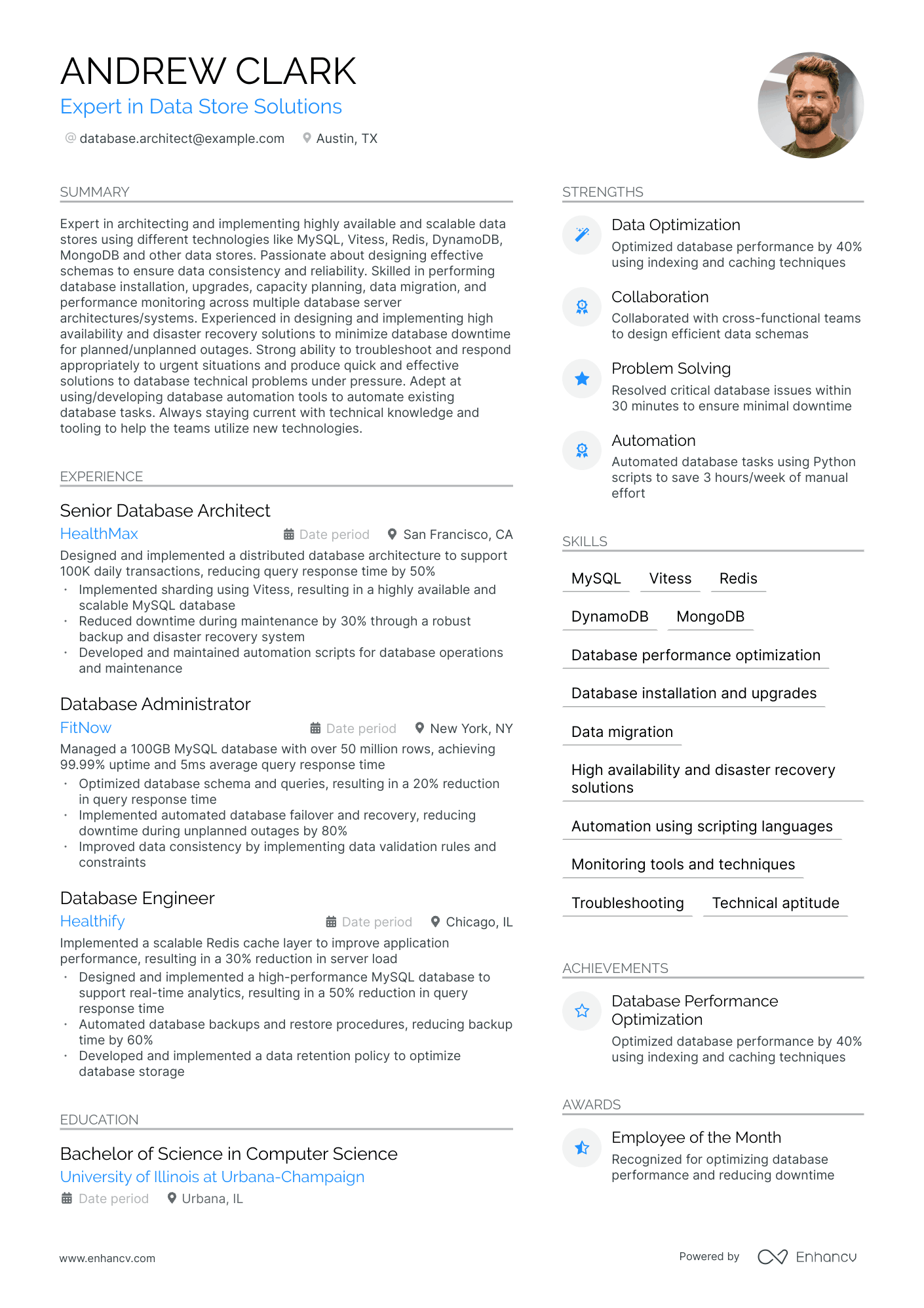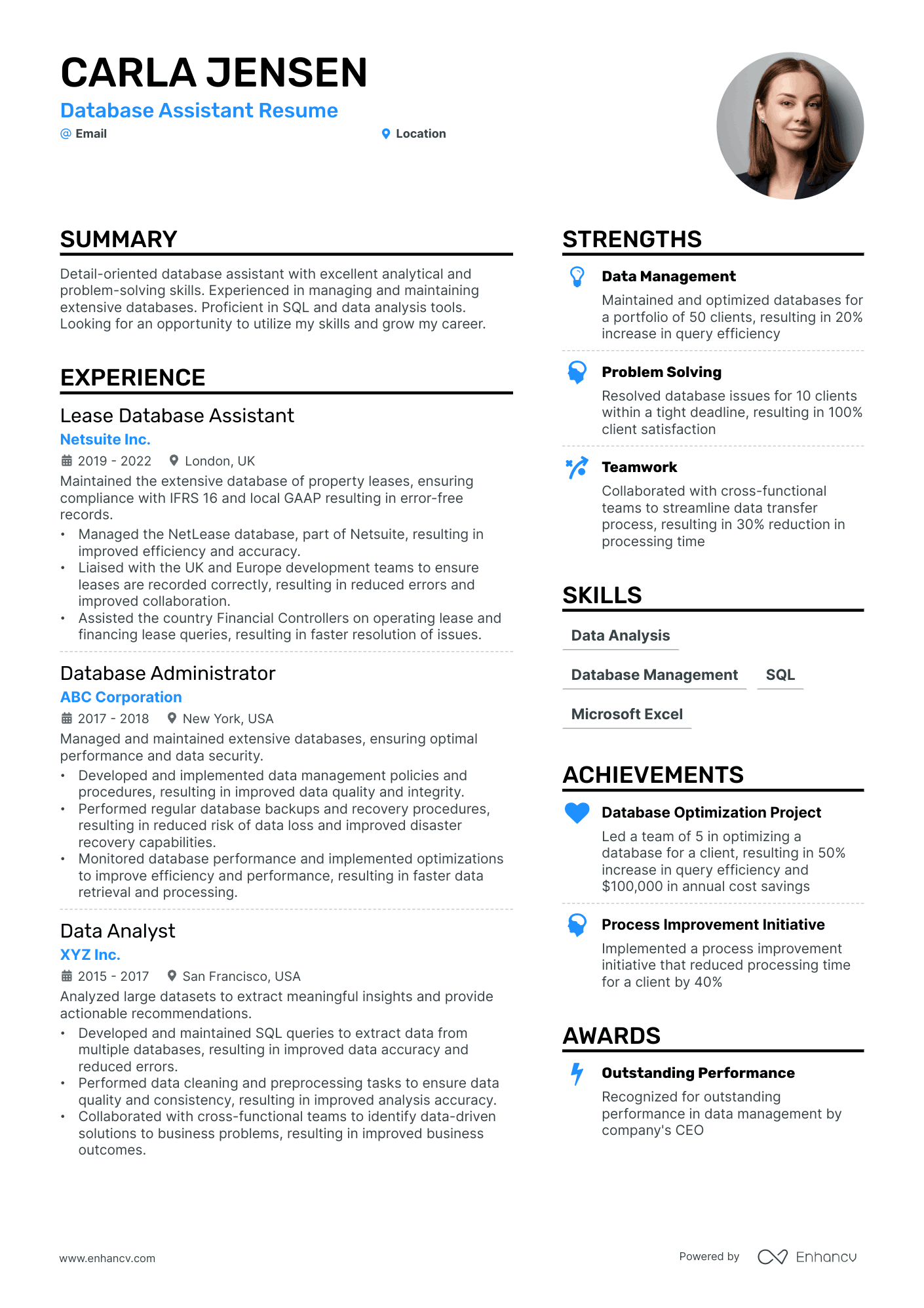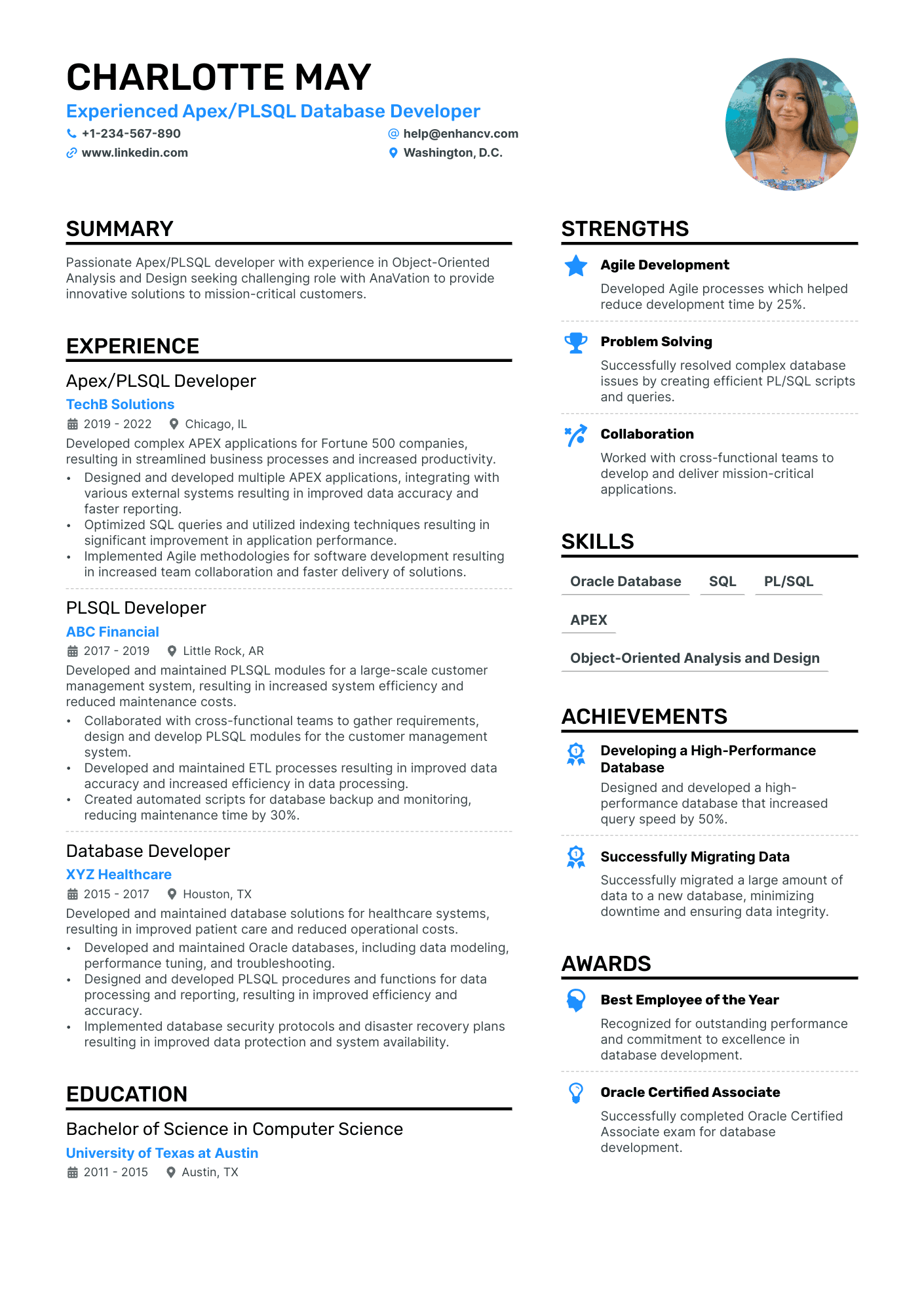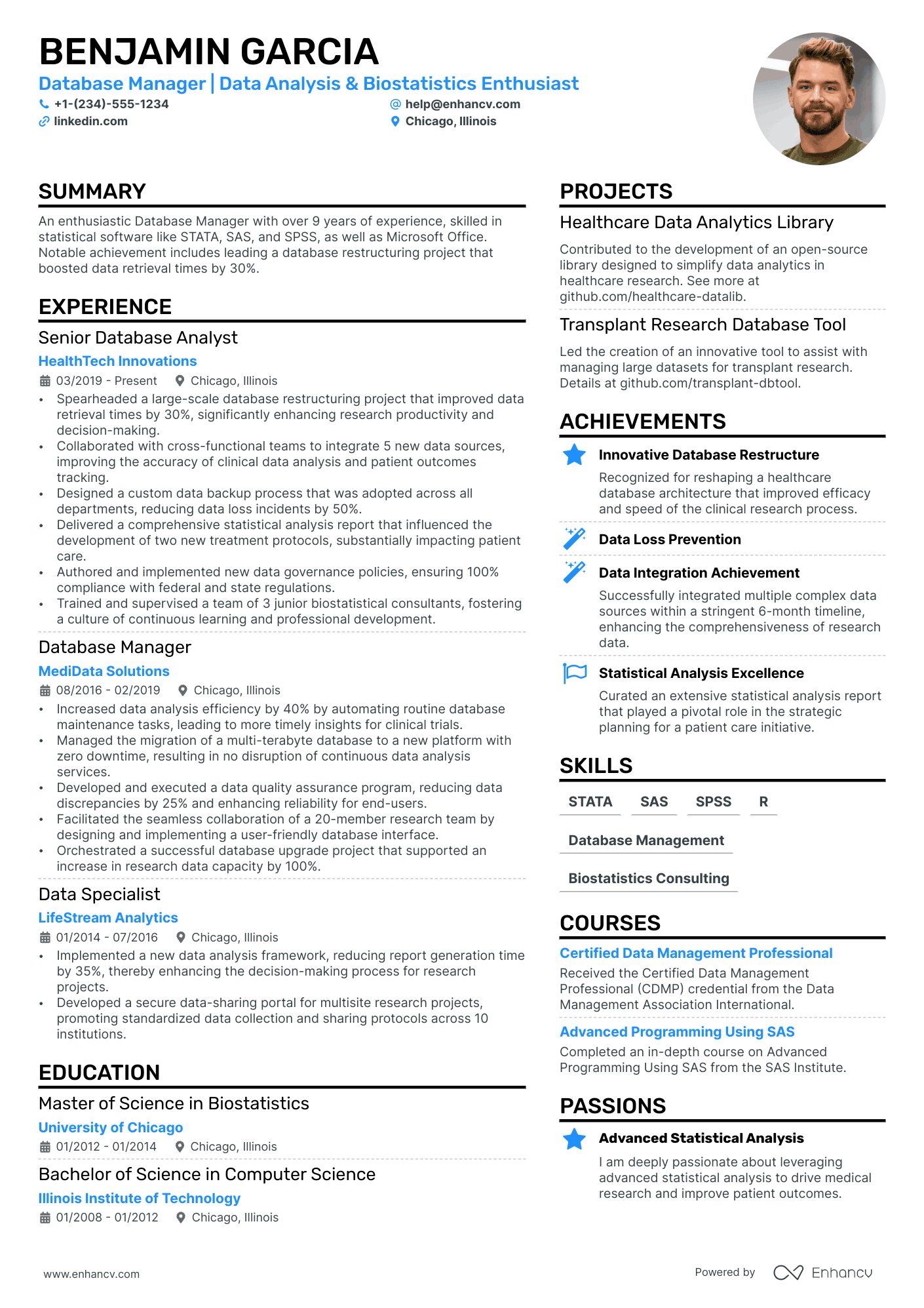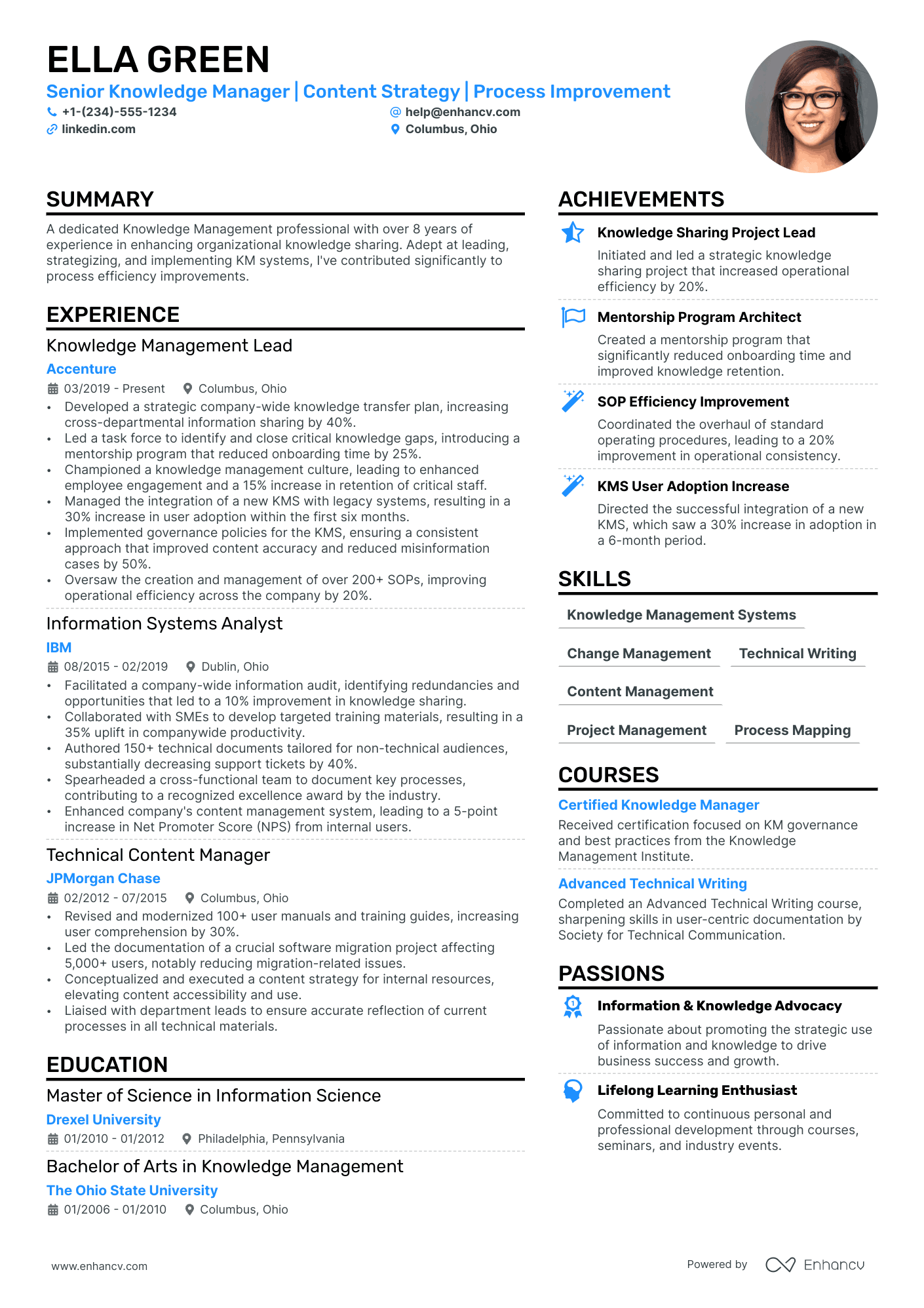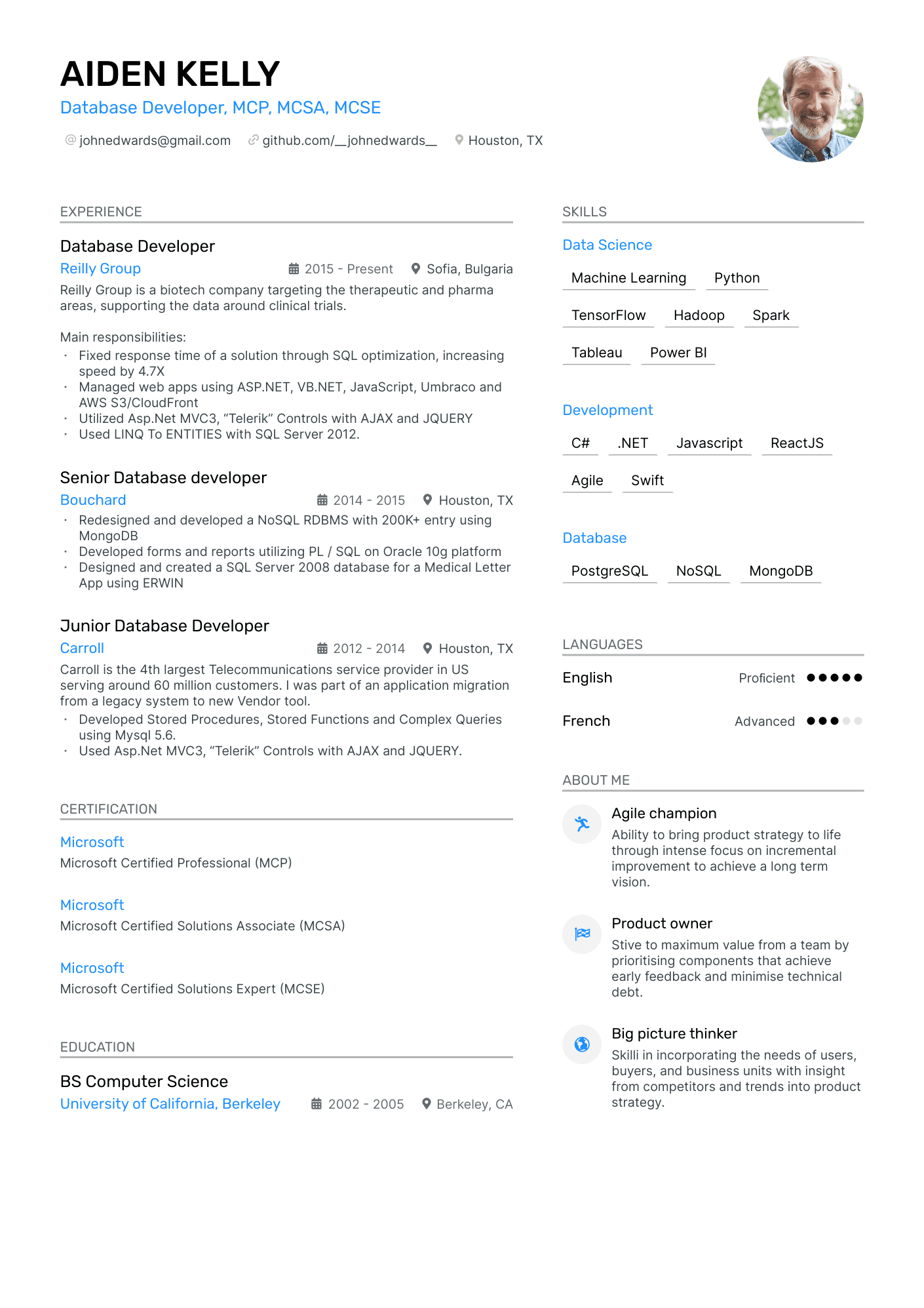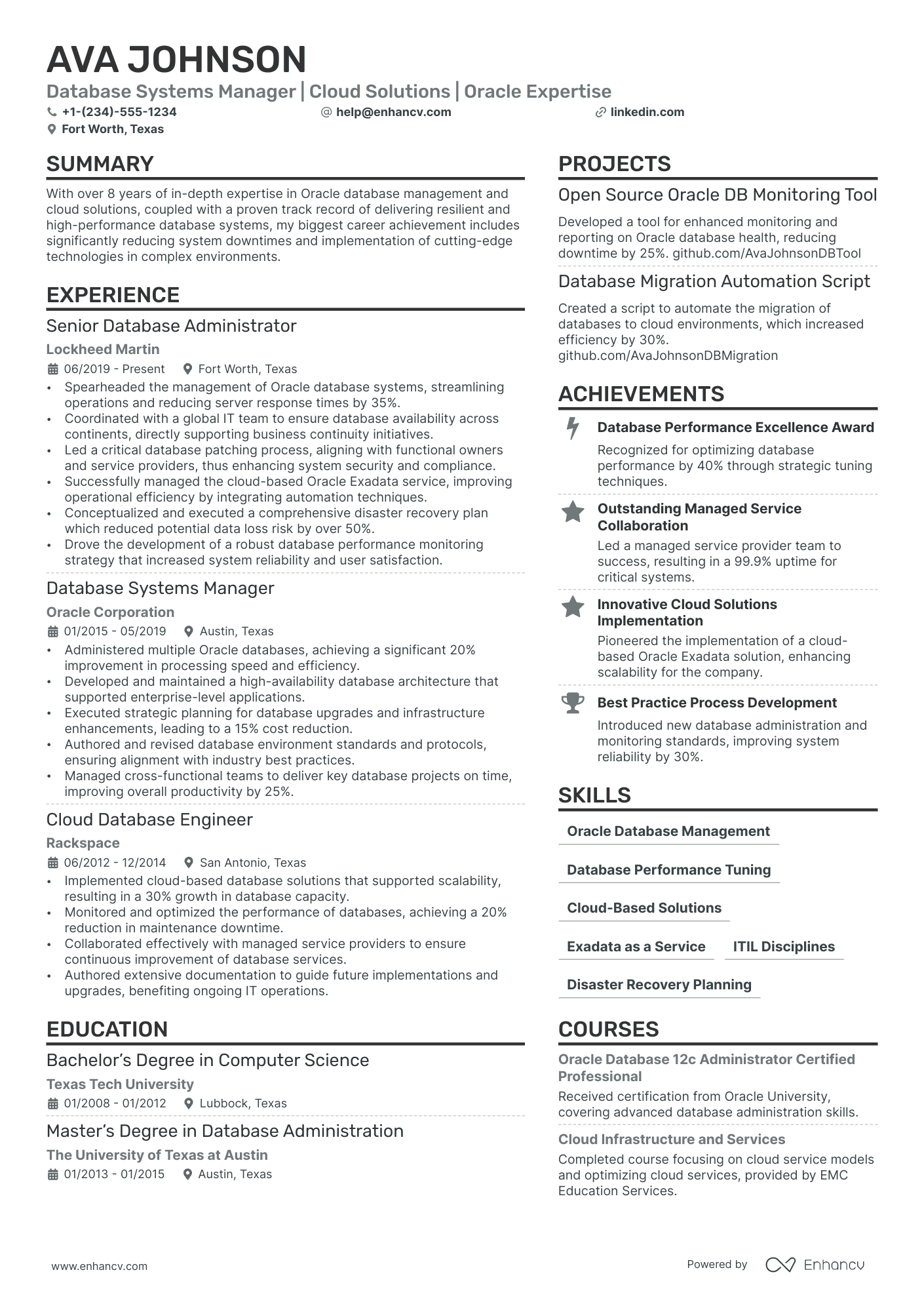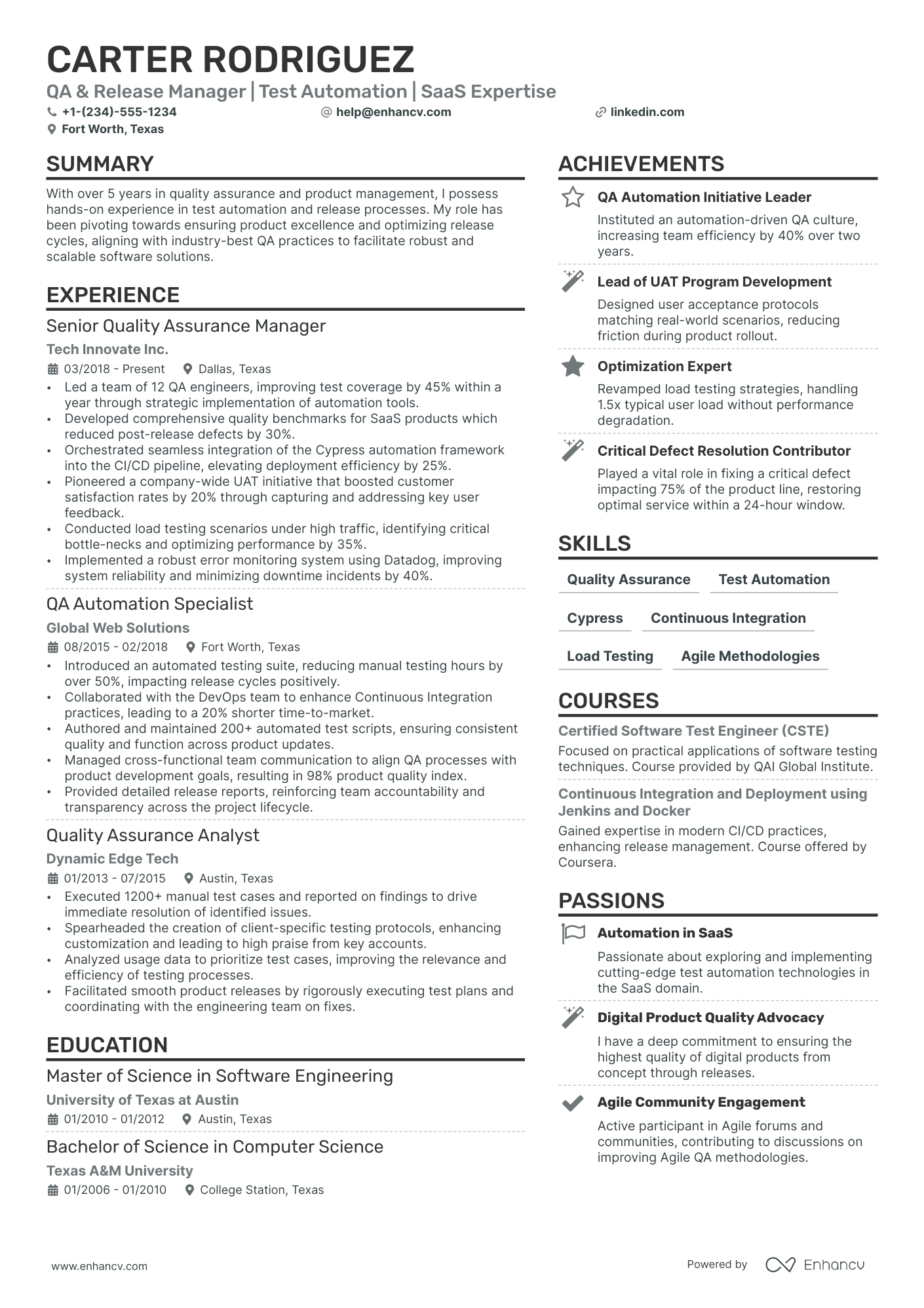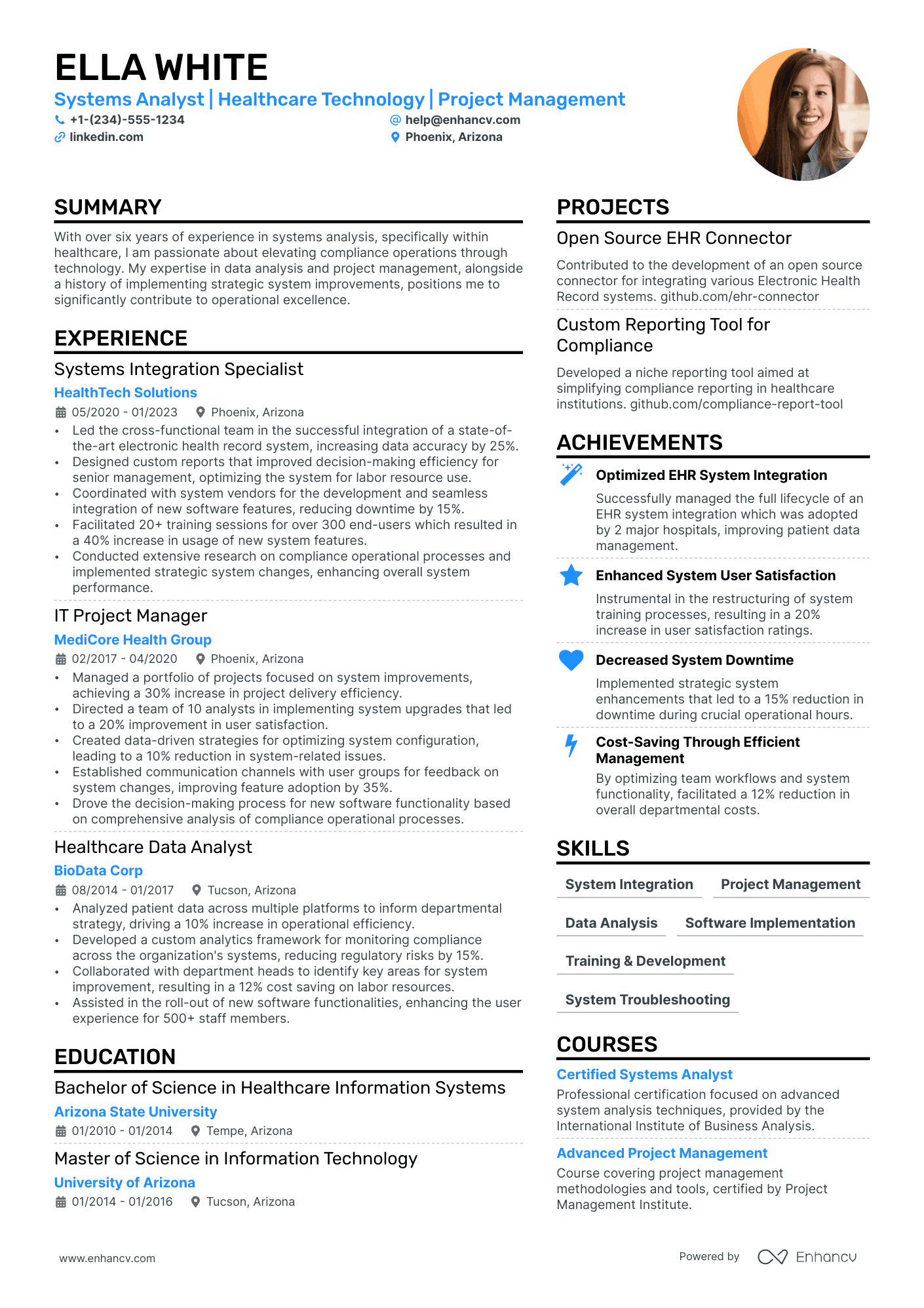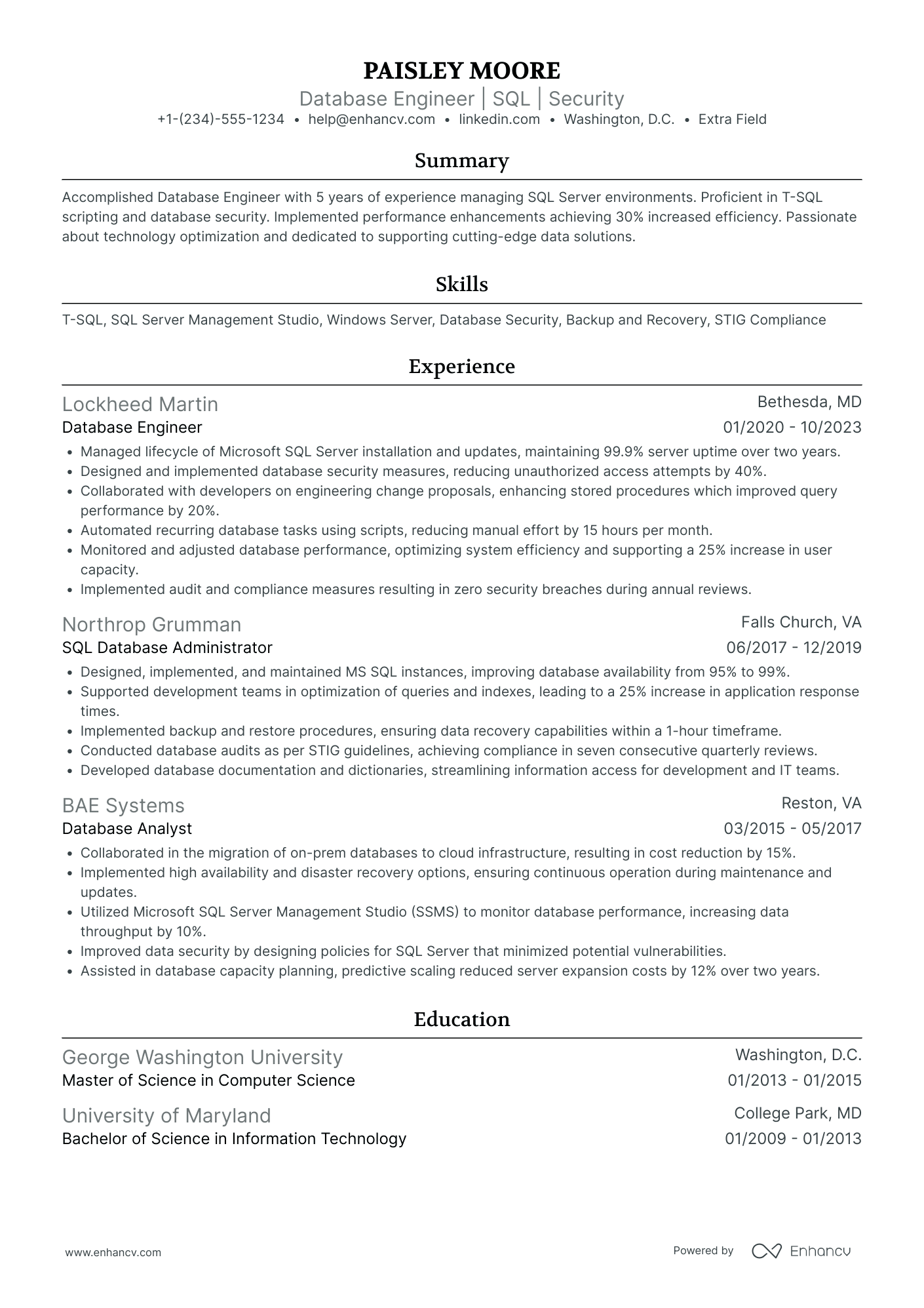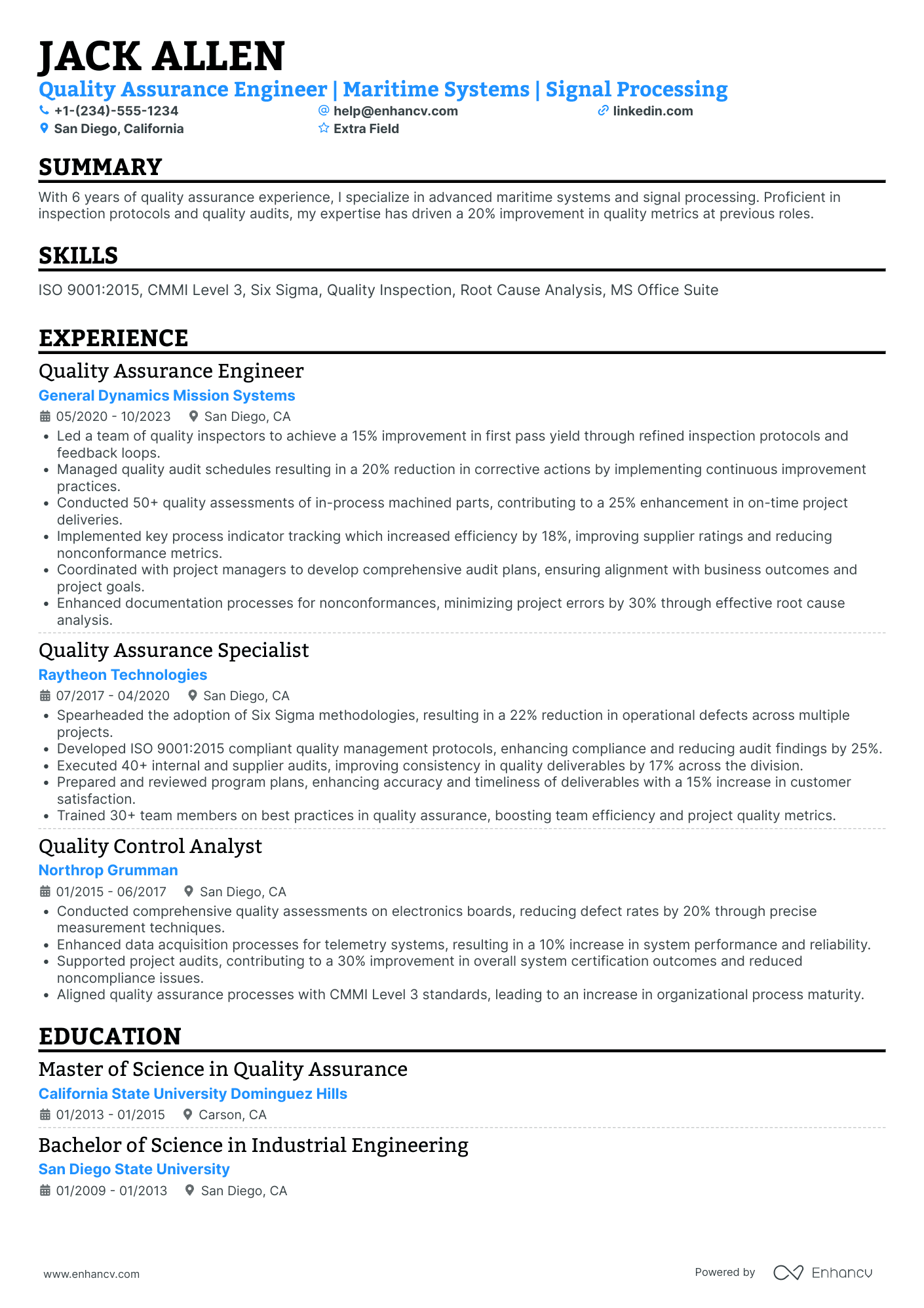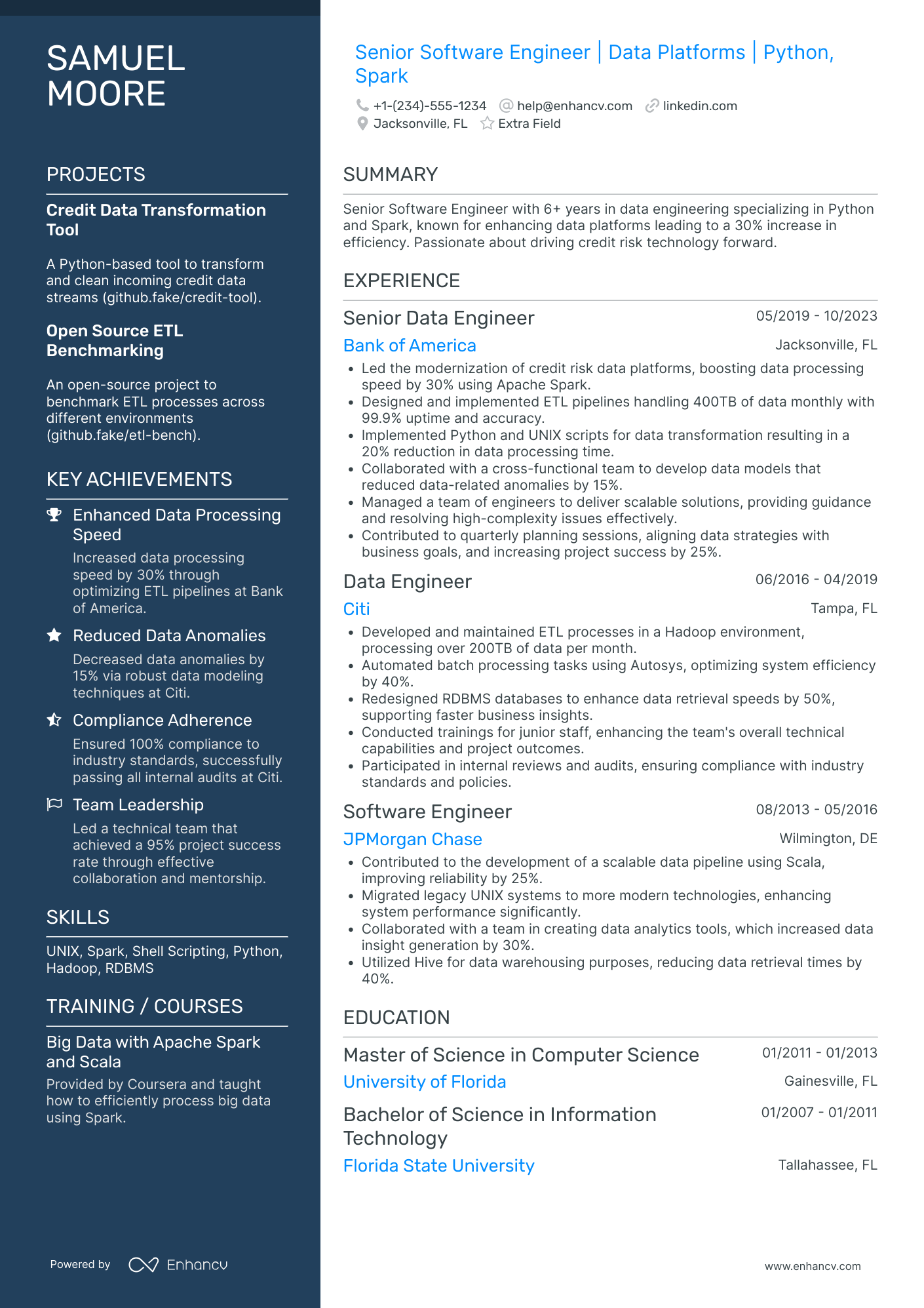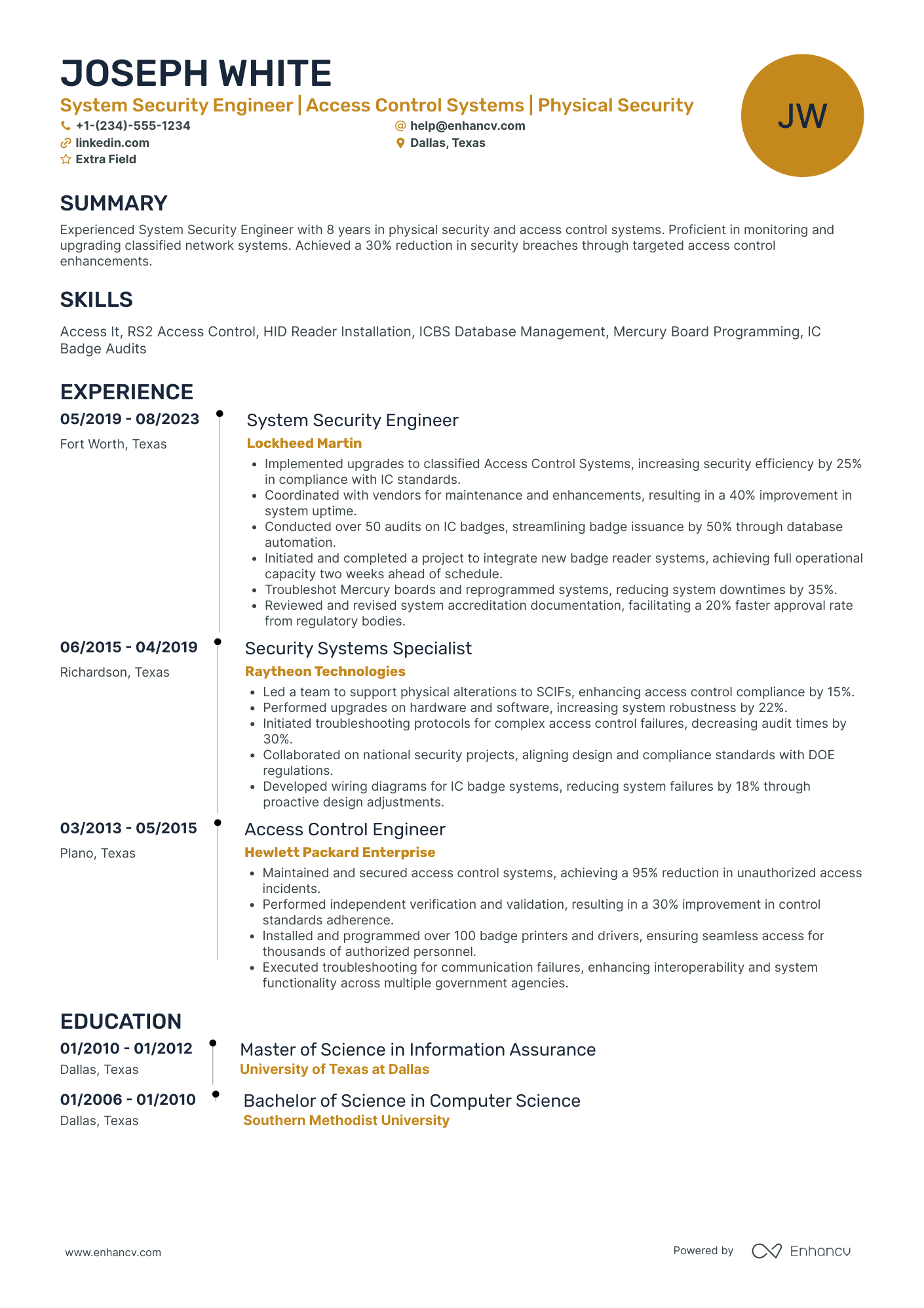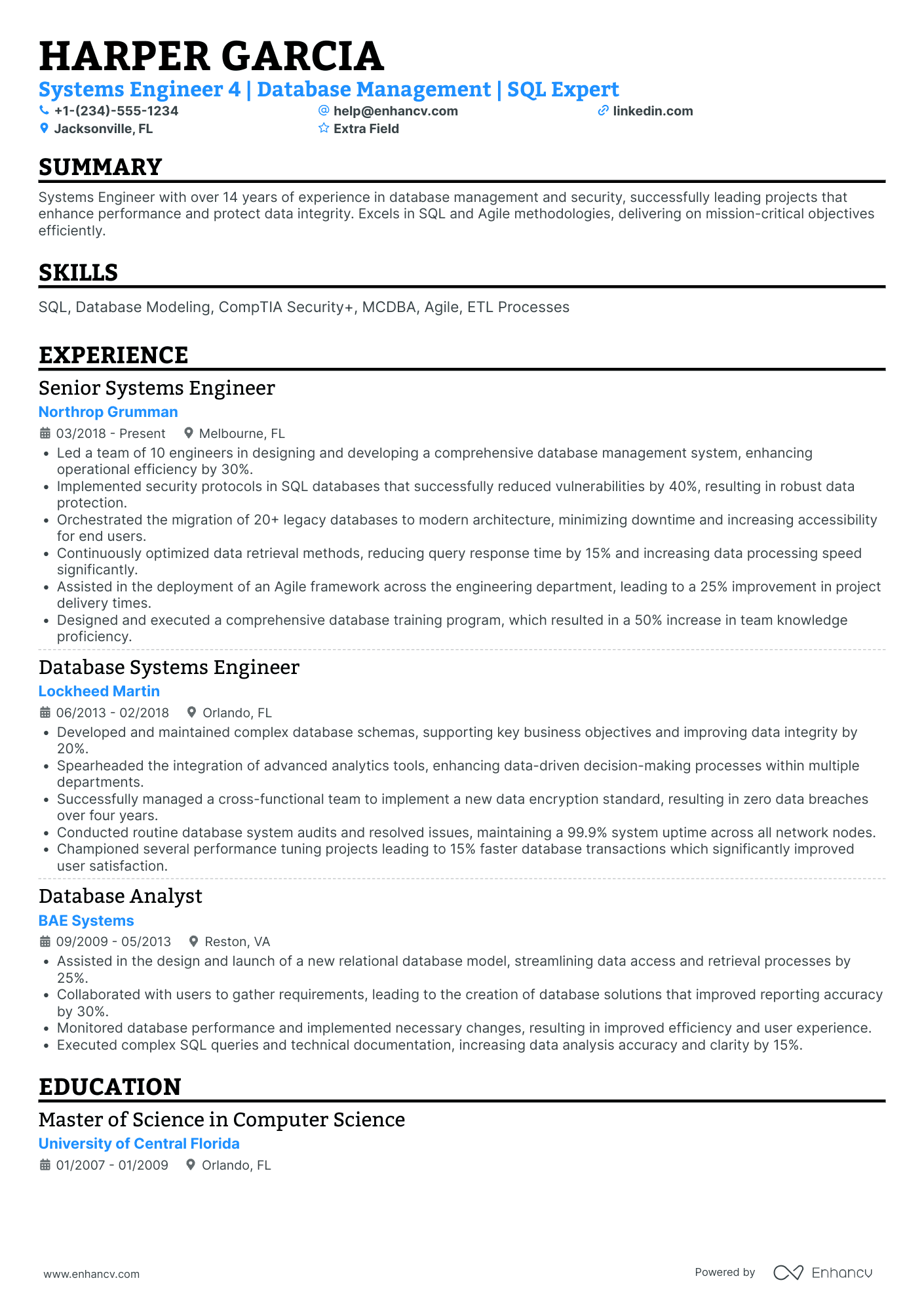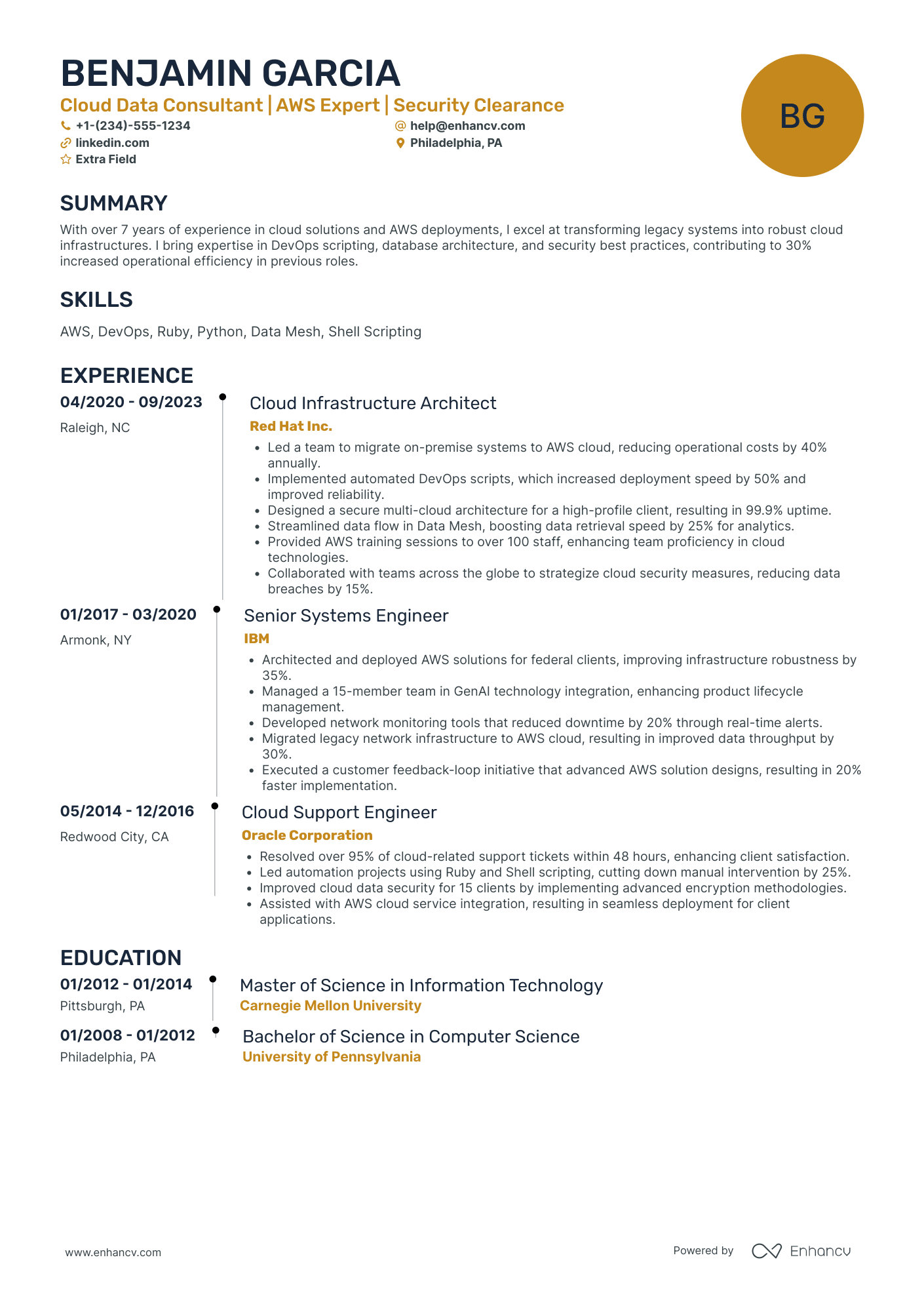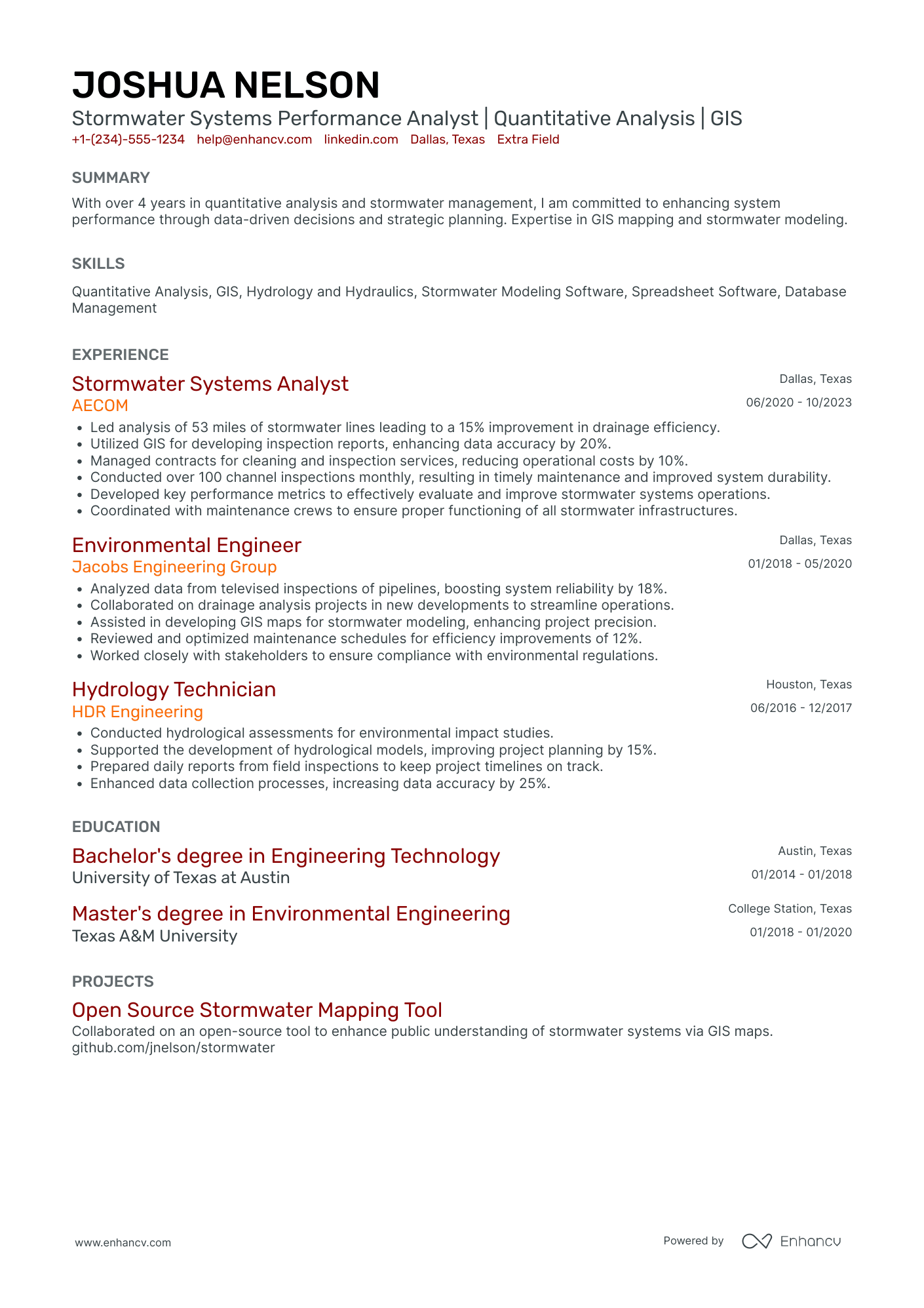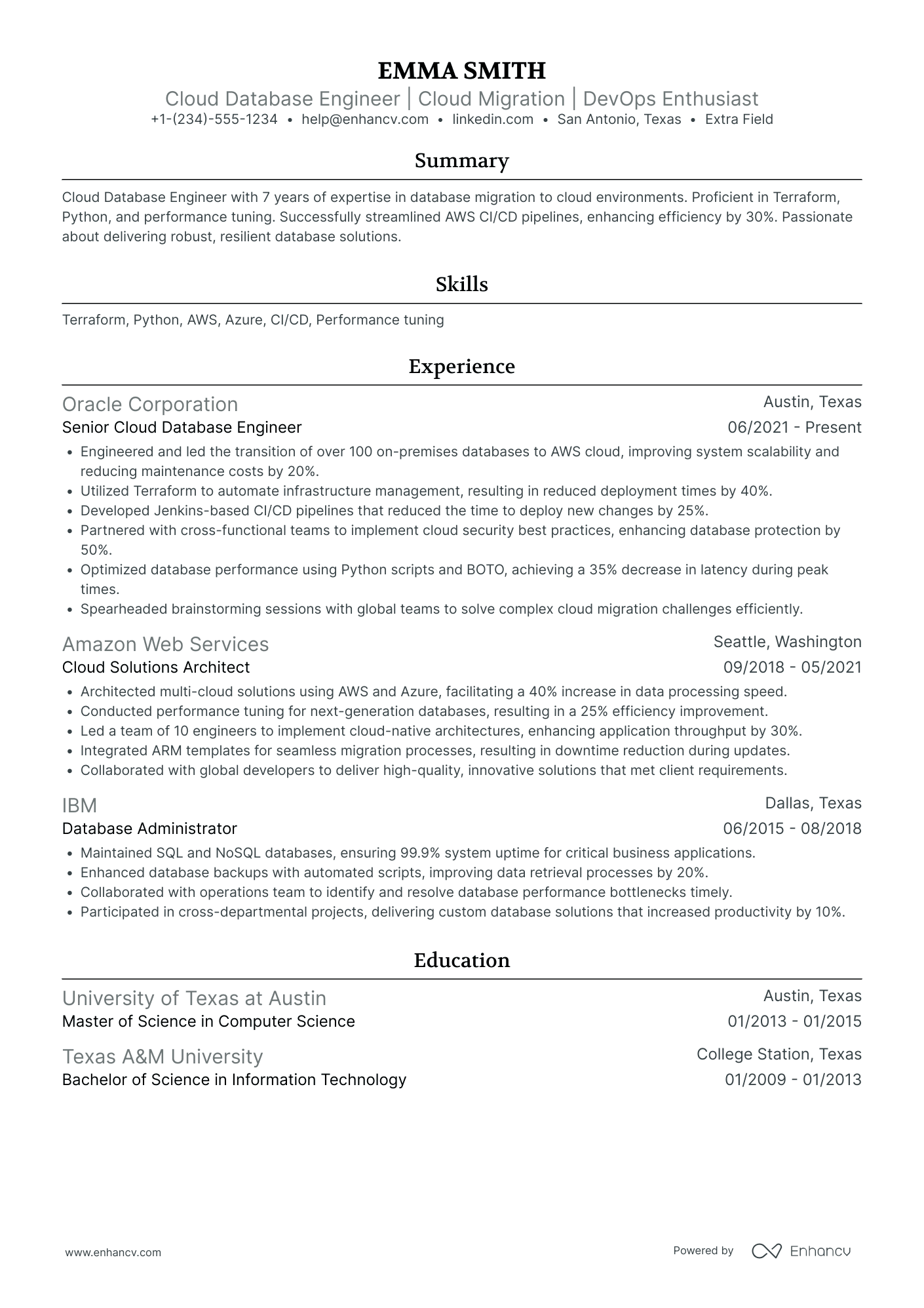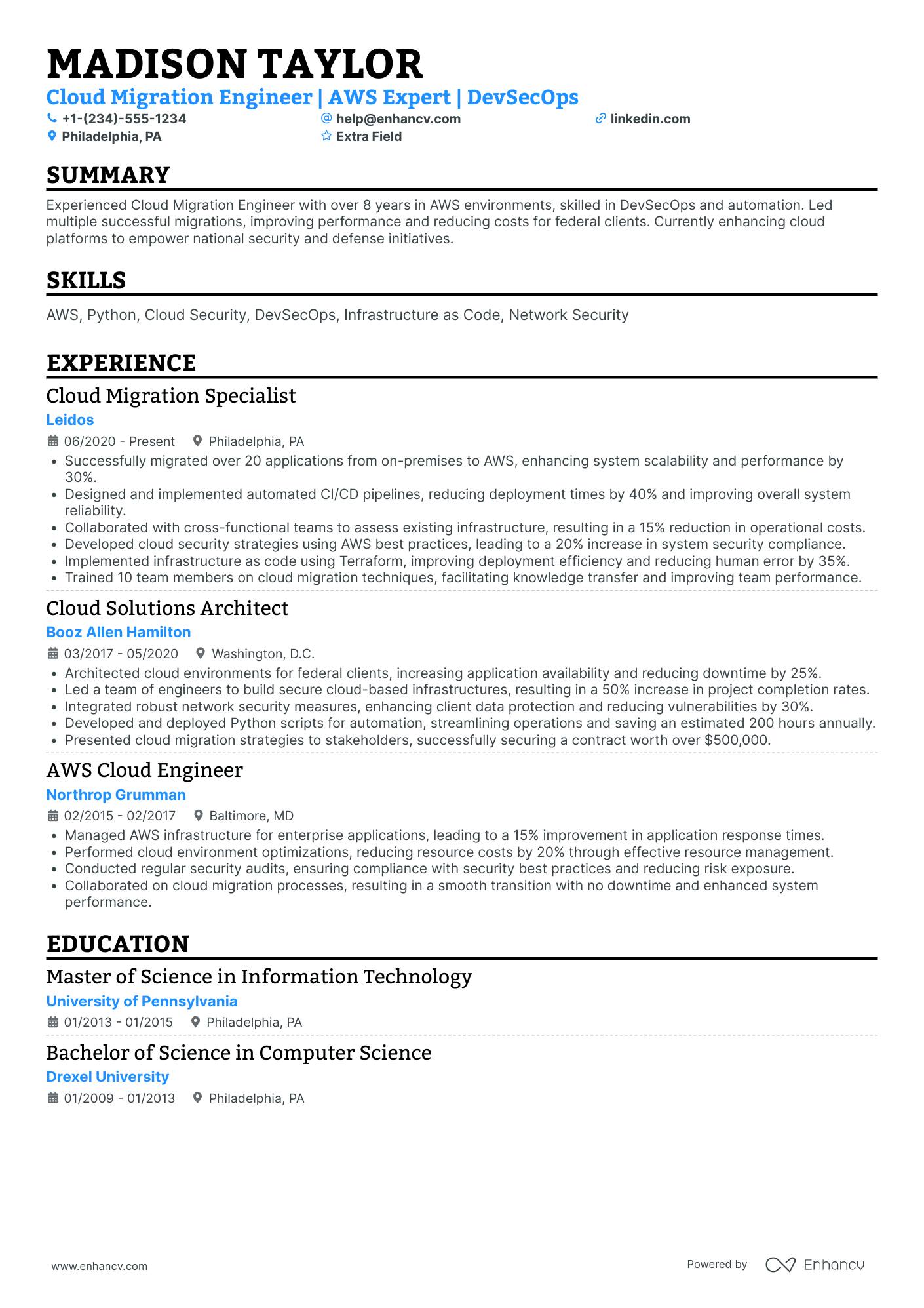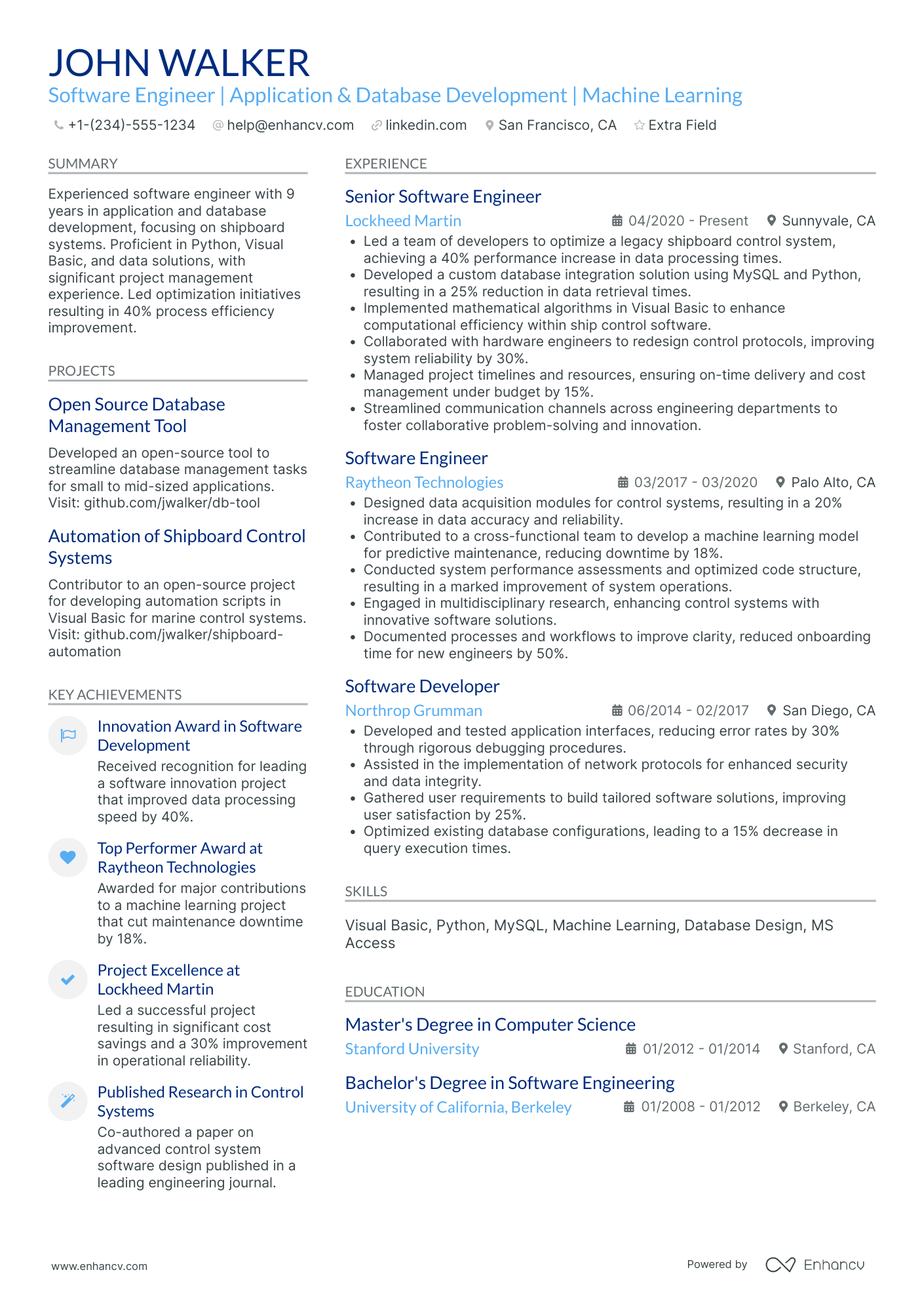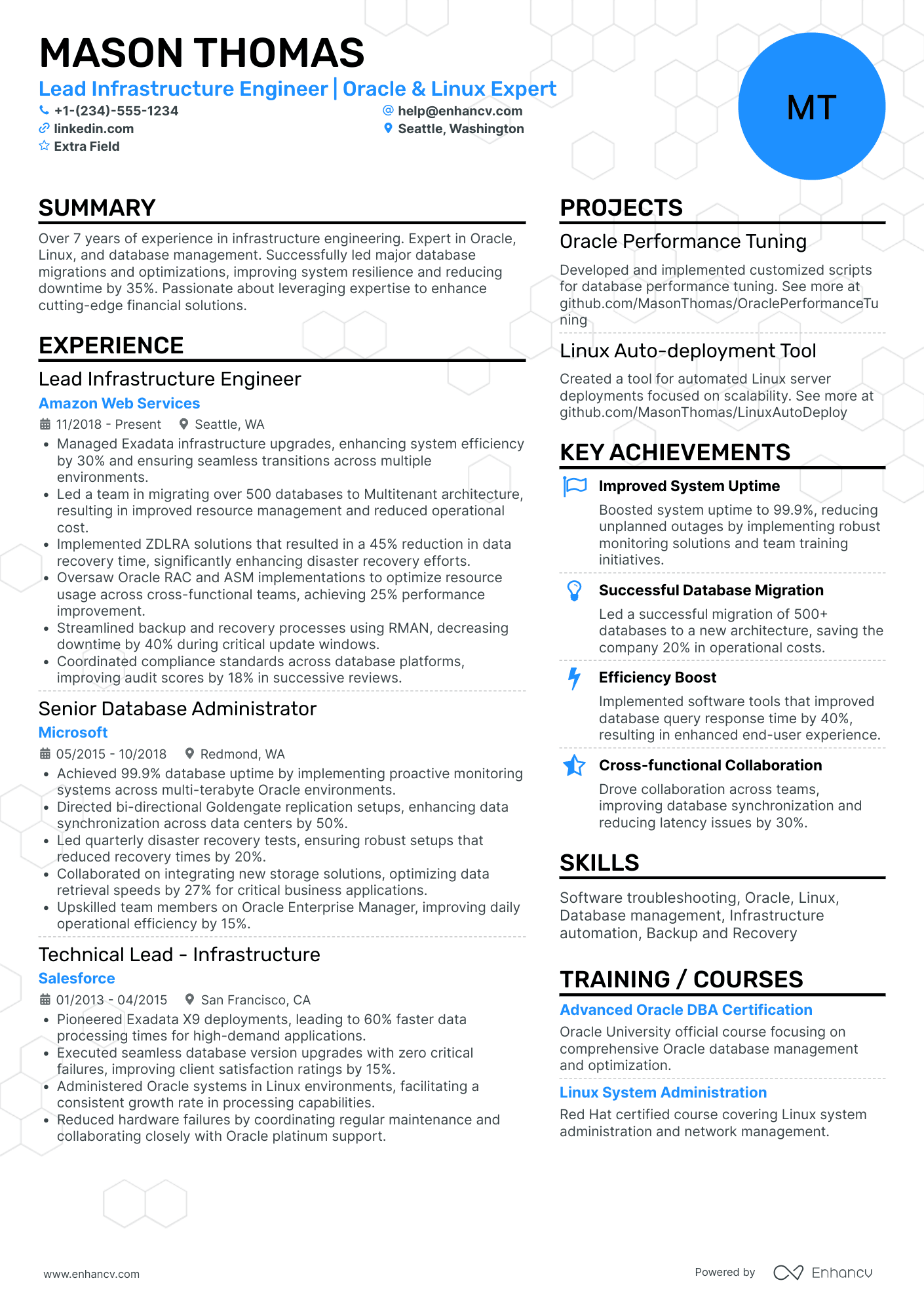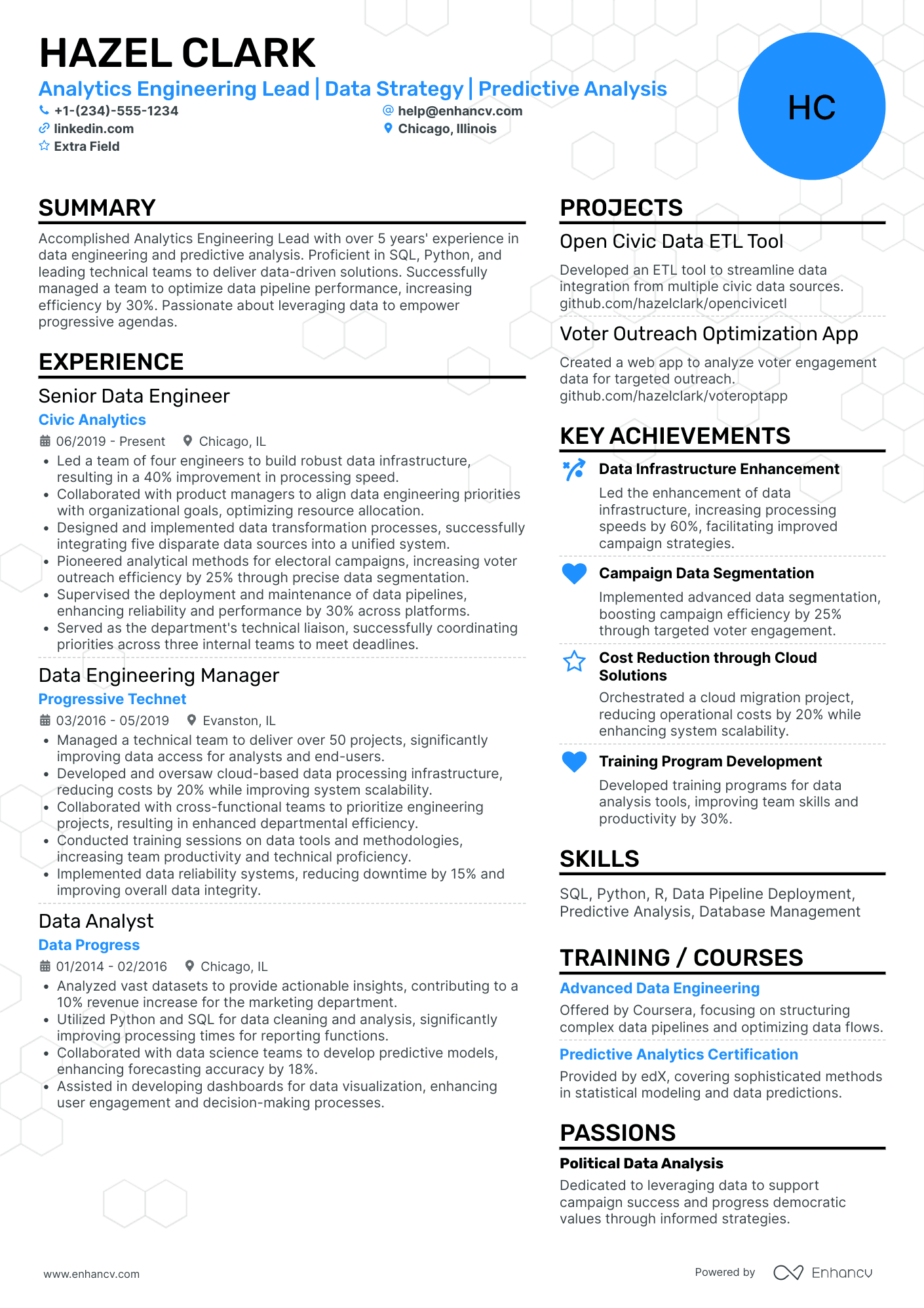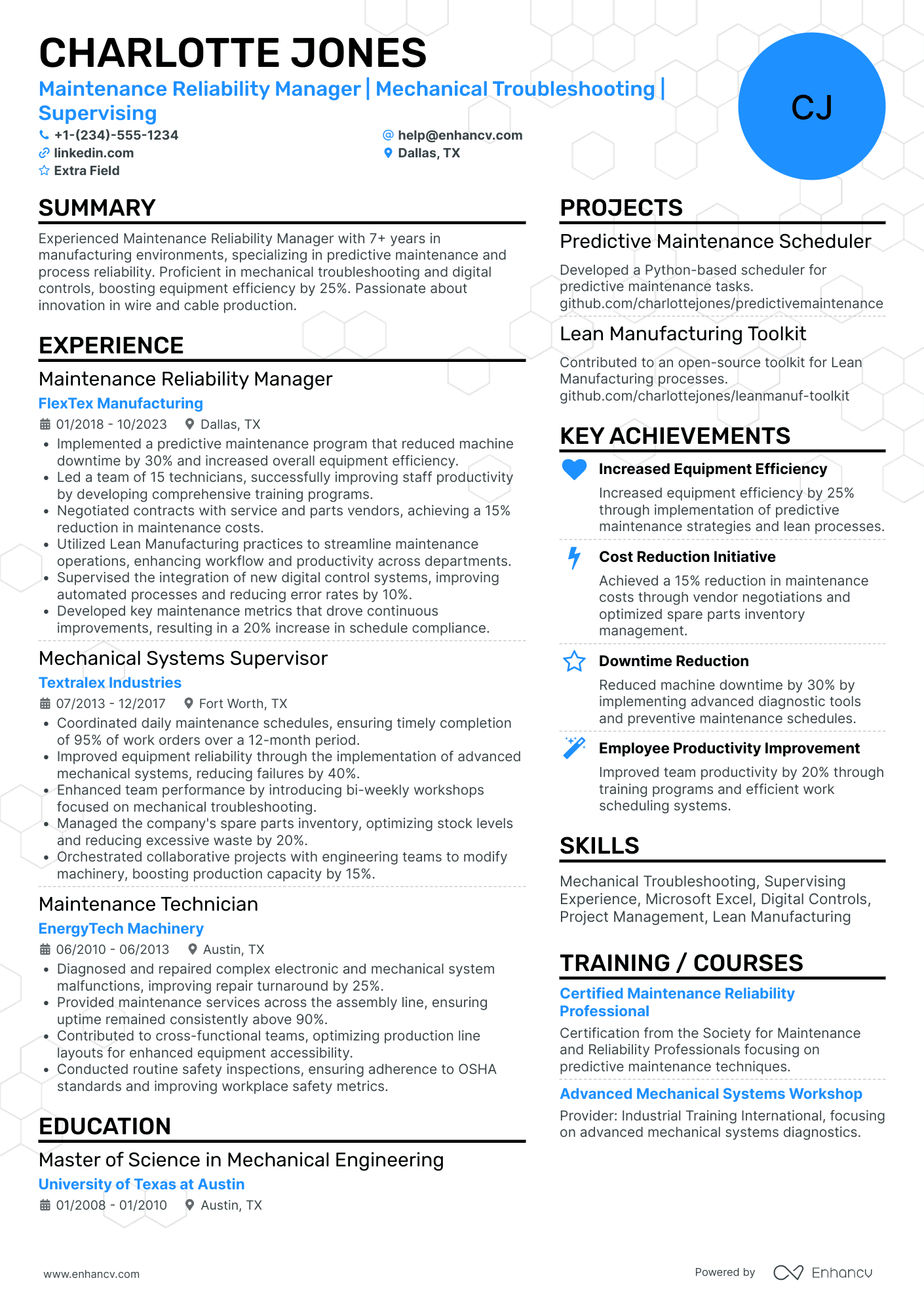Many database engineer resume submissions fail because they read like tool inventories and don't connect work to reliability, performance, or cost. In today's ATS screening and fast recruiter scans, that hides your impact and drops you from shortlists.
A strong resume shows outcomes first, then backs them with context. Knowing how to make your resume stand out means you'll highlight reduced query latency, improved uptime, lowered cloud spend, protected data with audit-ready controls, migrated terabytes with minimal downtime, and delivered faster releases through safer schema changes.
Key takeaways
- Lead every experience bullet with a measurable outcome, not a task description.
- Use reverse-chronological format if you have significant database engineering experience.
- Choose a hybrid, skills-forward format when entering the field or switching careers.
- Tailor your resume to each job posting by mirroring its platforms, tools, and terminology.
- Anchor every listed skill to a specific project, role, or quantified result.
- Place certifications above education when they're recent and directly relevant to the role.
- Use Enhancv to turn vague job duties into quantified, recruiter-ready resume bullets faster.
Job market snapshot for database engineers
We analyzed 125 recent database engineer job ads across major US job boards. These numbers help you understand skills in demand, role specialization trends, industry demand at a glance.
What level of experience employers are looking for database engineers
| Years of Experience | Percentage found in job ads |
|---|---|
| 1–2 years | 7.2% (9) |
| 3–4 years | 4.0% (5) |
| 5–6 years | 12.8% (16) |
| 7–8 years | 6.4% (8) |
| 9–10 years | 9.6% (12) |
| 10+ years | 17.6% (22) |
| Not specified | 50.4% (63) |
Database engineer ads by area of specialization (industry)
| Industry (Area) | Percentage found in job ads |
|---|---|
| Finance & Banking | 47.2% (59) |
| Healthcare | 16.8% (21) |
| Education | 15.2% (19) |
| Manufacturing | 10.4% (13) |
Role overview stats
These tables show the most common responsibilities and employment types for database engineer roles. Use them to align your resume with what employers expect and to understand how the role is structured across the market.
Day-to-day activities and top responsibilities for a database engineer
| Responsibility | Percentage found in job ads |
|---|---|
| Sql | 51.2% (64) |
| Postgresql | 49.6% (62) |
| Python | 46.4% (58) |
| Aws | 36.8% (46) |
| Oracle | 31.2% (39) |
| Linux | 29.6% (37) |
| Azure | 26.4% (33) |
| Ci/cd | 26.4% (33) |
| Mysql | 24.8% (31) |
| Agile | 21.6% (27) |
| Terraform | 21.6% (27) |
| Ansible | 20.8% (26) |
Type of employment (remote vs on-site vs hybrid)
| Employment type | Percentage found in job ads |
|---|---|
| On-site | 64.8% (81) |
| Hybrid | 26.4% (33) |
| Remote | 8.8% (11) |
How to format a database engineer resume
Recruiters evaluating database engineer resumes prioritize hands-on technical depth—schema design, query optimization, database administration across specific platforms—alongside measurable performance improvements and project scope. A clean, well-structured resume format ensures these signals surface immediately, both for human reviewers scanning in seconds and for applicant tracking systems parsing your content.
I have significant experience in this role—which format should I use?
Use a reverse-chronological format to present your database engineering career in a clear, linear progression that highlights growing technical ownership and project scope. Do:
- Lead each role entry with your scope of responsibility: number of databases managed, environments supported (production, staging, disaster recovery), and team size or cross-functional coordination.
- List role-specific platforms, tools, and domains prominently within each position—such as PostgreSQL, Oracle, SQL Server, MongoDB, AWS RDS, Terraform, or data pipeline frameworks—so recruiters and ATS filters catch them in context.
- Quantify outcomes tied to business impact: uptime improvements, query performance gains, cost reductions, migration completions, or incident resolution benchmarks.
I'm junior or switching into this role—what format works best?
A hybrid format works best, letting you lead with a focused skills section while still showing relevant work or project experience in chronological order. Do:
- Place a technical skills section near the top, organized by category (database platforms, query languages, cloud infrastructure, monitoring tools), so recruiters and ATS systems register your qualifications immediately.
- Highlight projects, lab work, internships, or transitional experience that involved real database tasks—such as designing schemas, writing stored procedures, performing migrations, or tuning queries—even if the job title wasn't "database engineer."
- Connect every action to a clear result, showing you understand why the work mattered, not just what you did.
Why not use a functional resume?
A functional format strips your database engineering skills away from the specific roles, projects, and timelines where you applied them, making it difficult for recruiters to assess your actual hands-on experience and nearly impossible for ATS software to parse your career accurately. Avoid a functional format unless you have no other viable option for presenting your qualifications.
- A functional resume may be acceptable if you're making a significant career change into database engineering, have a limited formal work history, or need to address extended resume gaps—but even then, every listed skill should be anchored to a specific project, certification lab, or measurable outcome rather than presented in isolation.
Once your layout and formatting choices are in place, the next step is deciding which sections to include so each one reinforces your qualifications.
What sections should go on a database engineer resume
Recruiters expect a database engineer resume to clearly show your ability to design, optimize, secure, and operate reliable data systems at scale. Understanding which resume sections to include helps you structure your content for maximum clarity:
- Header
- Summary
- Experience
- Skills
- Projects
- Education
- Certifications
- Optional sections: Publications, Open-source work, Leadership
Strong experience bullets should emphasize measurable impact, performance and reliability outcomes, scale and complexity, and the results of migrations, optimizations, and incident reductions.
Is your resume good enough?
Drop your resume here or choose a file. PDF & DOCX only. Max 2MB file size.
Once you’ve organized your resume with the right core sections, the next step is to write your database engineer experience so each role supports and strengthens that structure.
How to write your database engineer resume experience
The experience section is where you prove you've shipped real database solutions—designed schemas, optimized queries, migrated data platforms, and delivered measurable improvements to performance, reliability, or scalability. Hiring managers prioritize demonstrated impact over descriptive task lists, so every bullet should connect your technical execution to a concrete outcome.
Each entry should include:
- Job title
- Company and location (or remote)
- Dates of employment (month and year)
Three to five concise bullet points showing what you owned, how you executed, and what outcomes you delivered:
- Ownership scope: the database systems, data pipelines, storage platforms, or infrastructure environments you were directly accountable for, including the scale of data, number of users served, or criticality of the systems you managed.
- Execution approach: the specific database technologies, query languages, indexing strategies, replication methods, automation frameworks, or monitoring tools you used to architect solutions and resolve problems.
- Value improved: the changes you drove in query performance, data integrity, system uptime, storage efficiency, backup reliability, or security posture as a direct result of your database engineering work.
- Collaboration context: how you partnered with application developers, DevOps teams, data analysts, security engineers, or product stakeholders to align database architecture with broader technical and business requirements.
- Impact delivered: the tangible results your work produced—expressed through improvements in throughput, reductions in downtime, faster data retrieval, successful migrations, or cost savings—rather than a list of daily responsibilities.
Experience bullet formula
A database engineer experience example
✅ Right example - modern, quantified, specific.
Database Engineer
NimbusPay | Remote
2022–Present
Built and scaled payment data platforms processing high-volume transactions for a fintech serving two million customers.
- Architected and implemented PostgreSQL partitioning, indexing, and query tuning, cutting p95 transaction-query latency from 420 ms to 130 ms and reducing database CPU by 28%.
- Designed an AWS Database Migration Service (AWS DMS) and logical replication strategy to migrate 18 TB from Oracle to PostgreSQL with under five minutes of downtime, partnering with application engineers and product managers on cutover plans.
- Automated schema changes and safe deployments using Flyway, GitHub Actions, and pre-deployment validation, reducing production incidents tied to migrations by 45% and improving release cadence from biweekly to weekly.
- Built a near-real-time analytics pipeline with Debezium change data capture, Apache Kafka, and Snowflake, delivering data freshness under two minutes and enabling fraud models that lowered chargeback losses by 12%.
- Implemented role-based access control, column-level masking, and audit logging with HashiCorp Vault and PostgreSQL Row Level Security, passing SOC 2 Type II controls with zero high-severity findings.
Now that you've seen how a strong experience section comes together, let's look at how to adjust those details to match the specific job you're targeting.
How to tailor your database engineer resume experience
Recruiters evaluate your database engineer resume through both human review and applicant tracking systems (ATS). Tailoring your resume to the job description increases your chances of advancing past both screening layers.
Ways to tailor your database engineer experience:
- Match the specific database platforms and tools named in the posting.
- Mirror the exact terminology used for data modeling methodologies.
- Reflect performance benchmarks or reliability KPIs the employer prioritizes.
- Highlight compliance standards like GDPR or HIPAA when listed.
- Include relevant industry or domain experience that the role requires.
- Use the same language for backup recovery or replication frameworks referenced.
- Emphasize security protocols or access control practices the posting specifies.
- Align your collaboration descriptions with the team structures they outline.
Tailoring means aligning your real accomplishments with what the employer values, not forcing disconnected keywords into your experience.
Resume tailoring examples for database engineer
| Job description excerpt | Untailored | Tailored |
|---|---|---|
| Design and maintain scalable PostgreSQL databases supporting real-time analytics pipelines for a SaaS platform serving 10M+ users | Managed databases and ensured they ran smoothly for the team. | Designed and optimized PostgreSQL schemas supporting real-time analytics pipelines, reducing query latency by 40% across a SaaS platform serving 10M+ active users. |
| Implement automated backup, disaster recovery, and replication strategies using AWS RDS and DMS for HIPAA-compliant healthcare data | Handled database backups and helped with data migration tasks. | Implemented automated backup and disaster recovery workflows using AWS RDS and DMS, achieving 99.99% data availability for HIPAA-compliant healthcare datasets across three production environments. |
| Collaborate with data engineering teams to optimize ETL workflows in Apache Spark and maintain data integrity across Oracle and MongoDB systems | Worked with other teams to support data projects and fix database issues. | Partnered with data engineering to optimize Apache Spark ETL workflows, cutting pipeline runtimes by 30% while enforcing data integrity checks across Oracle and MongoDB systems. |
Once you’ve aligned your experience with the role’s needs, the next step is to quantify your database engineer achievements so hiring teams can see the measurable impact behind those choices.
How to quantify your database engineer achievements
Quantifying your achievements proves business impact beyond "kept systems running." Focus on latency, throughput, availability, cost, data quality, security risk, and delivery speed to show how your database changes improved performance and reliability.
Quantifying examples for database engineer
| Metric | Example |
|---|---|
| Query performance | "Cut p95 query latency from 420 ms to 95 ms by adding composite indexes and rewriting five PostgreSQL queries using EXPLAIN ANALYZE." |
| Availability | "Improved database uptime from 99.85% to 99.98% by tuning failover, adding health checks, and validating recovery runbooks quarterly." |
| Cost efficiency | "Reduced monthly storage costs by 28% by implementing partitioning, compressing cold tables, and moving archive data to S3 via lifecycle policies." |
| Data quality | "Lowered duplicate customer records by 72% by enforcing unique constraints, adding validation in ETL, and backfilling five million rows safely." |
| Security risk | "Closed twelve high-risk findings by enabling TLS, rotating secrets in Vault, and applying least-privilege roles across forty service accounts." |
Turn vague job duties into measurable, recruiter-ready resume bullets in seconds with Enhancv's Bullet Point Generator.
Once you've crafted strong bullet points for your experience section, the next step is ensuring your resume also highlights the right hard and soft skills employers look for in a database engineer.
How to list your hard and soft skills on a database engineer resume
Skills matter because database engineers get screened on database platforms, performance, reliability, and delivery behaviors—recruiters and an ATS (applicant tracking system) scan the skills section for keyword match and scope, and most resumes land near a 70/30 hard-to-soft split. Database engineer roles require a blend of:
- Product strategy and discovery skills.
- Data, analytics, and experimentation skills.
- Delivery, execution, and go-to-market discipline.
- Soft skills.
Your resume should showcase relevant hard skills alongside the soft skills that demonstrate how you collaborate and communicate in technical environments.
Your skills section should be:
- Scannable (bullet-style grouping).
- Relevant to the job post.
- Backed by proof in experience bullets.
- Updated with current tools.
Place your skills section:
- Above experience if you're junior or switching careers.
- Below experience if you're mid/senior with strong achievements.
Hard skills
- SQL, query optimization
- PostgreSQL, MySQL
- Microsoft SQL Server
- Oracle Database
- MongoDB, Cassandra
- Indexing, partitioning
- Replication, high availability
- Backup, restore, disaster recovery
- Data modeling, normalization
- ETL, ELT pipelines
- Performance monitoring, tuning
- AWS RDS, Azure SQL, Google Cloud SQL
Soft skills
- Translate requirements into schemas
- Drive cross-team technical alignment
- Communicate tradeoffs and risk
- Own incidents through resolution
- Prioritize reliability and performance work
- Document standards and runbooks
- Review queries and schema changes
- Partner with security and compliance
- Coordinate maintenance windows
- Escalate blockers early
- Mentor developers on database usage
- Validate changes with stakeholders
How to show your database engineer skills in context
Skills shouldn't live only in a dedicated skills list. Explore examples of resume skills shown in context to see how they strengthen your overall presentation.
They should be demonstrated in:
- Your summary (high-level professional identity)
- Your experience (proof through outcomes)
Here's how that looks in practice.
Summary example
Senior database engineer with 10 years of experience designing high-availability PostgreSQL and Oracle systems for fintech platforms. Skilled in query optimization, replication, and cross-team data modeling—reducing average query latency by 40% across production environments.
- Signals senior-level expertise immediately
- Names specific tools and platforms
- Leads with a measurable outcome
- Implies strong cross-team collaboration
Experience example
Senior Database Engineer
Vantage Financial Systems | Remote
March 2019–Present
- Redesigned PostgreSQL replication architecture with the infrastructure team, cutting failover time from 12 minutes to under 90 seconds.
- Optimized over 300 stored procedures using execution plan analysis in Oracle, improving reporting query performance by 55%.
- Partnered with application developers to implement Redis caching strategies, reducing primary database load by 35% during peak traffic.
- Every bullet includes measurable proof
- Skills surface naturally through real outcomes
Once you’ve tied your database engineering abilities to real outcomes and examples, the next step is to apply that same approach when you’re writing a database engineer resume with no experience.
How do I write a database engineer resume with no experience
Even without full-time experience, you can demonstrate readiness through:
- Database design course capstones
- Personal PostgreSQL schema projects
- SQL performance tuning exercises
- Open-source database contributions
- Internship or lab data pipelines
- Cloud database free-tier deployments
- Hackathon ETL and reporting builds
- Technical blog posts with benchmarks
If you're building your first application, our guide on writing a resume without work experience covers strategies that apply directly to database engineering candidates.
Focus on:
- SQL, indexing, and query plans
- Data modeling and normalization
- Reliability, backups, and recovery
- Tooling: Git, Docker, cloud
Resume format tip for entry-level database engineer
Use a skills-forward resume format because it highlights projects and technical proof when you lack full-time database engineer roles. Do:
- Lead with a skills section.
- Add two to four projects.
- Quantify latency, cost, or errors.
- Name tools: PostgreSQL, Docker, Git.
- Link to a public repository.
- Built a PostgreSQL schema with indexes and EXPLAIN tuning in Docker, cutting average query time from 420 ms to 95 ms across 50,000 rows.
Even without professional experience, your education section can serve as the foundation of your resume—here's how to present it effectively.
How to list your education on a database engineer resume
Your education section helps hiring teams confirm you have the foundational knowledge needed. It validates your technical training in areas like data structures, systems design, and database management.
Include:
- Degree name
- Institution
- Location
- Graduation year
- Relevant coursework (for juniors or entry-level candidates)
- Honors & GPA (if 3.5 or higher)
Skip month and day details—list the graduation year only.
Here's a strong education entry tailored to the database engineer role.
Example education entry
Bachelor of Science in Computer Science
Georgia Institute of Technology, Atlanta, GA
Graduated 2021
GPA: 3.7/4.0
- Relevant Coursework: Database Systems, Data Modeling, Distributed Computing, SQL Optimization, and Advanced Data Structures
- Honors: Dean's List (six semesters), Magna Cum Laude
How to list your certifications on a database engineer resume
Certifications on your resume show a database engineer's commitment to learning, hands-on tool proficiency, and current industry relevance, especially across cloud platforms, security, and performance tuning.
Include:
- Certificate name
- Issuing organization
- Year
- Optional: credential ID or URL
- Place certifications below education when they are older, less relevant, or your degree best explains your database engineer foundation.
- Place certifications above education when they are recent, highly relevant, or required for the database engineer roles you target.
Best certifications for your database engineer resume
AWS Certified Database – Specialty Microsoft Certified: Azure Database Administrator Associate Google Cloud Professional Data Engineer Oracle Database SQL Certified Associate Oracle Certified Professional, Oracle Database Administrator IBM Certified Database Administrator – DB2 CompTIA Security+
Once you’ve positioned your certifications where they’ll get noticed, use your database engineer resume summary to reinforce those qualifications upfront and set context for the rest of your resume.
How to write your database engineer resume summary
Your resume summary is the first thing a recruiter reads. A strong one instantly signals you're qualified for the database engineer role.
Keep it to three to four lines, with:
- Your title and total years of relevant experience.
- The domain or industry where you've worked, such as fintech, healthcare, or e-commerce.
- Core tools and technologies like SQL Server, PostgreSQL, MongoDB, or ETL pipelines.
- One or two quantified achievements that show measurable impact.
- Soft skills tied to real outcomes, such as cross-team collaboration that reduced deployment errors.
PRO TIP
At this level, focus on technical skills, relevant tools, and early contributions that prove you can deliver. Highlight specific databases and platforms you've used in production. Avoid vague phrases like "passionate problem-solver" or "quick learner." Replace them with concrete results from internships, projects, or your first professional role.
Example summary for a database engineer
Database engineer with two years of experience optimizing PostgreSQL and MySQL systems in e-commerce. Reduced average query response time by 34% through index tuning and schema redesign.
Optimize your resume summary and objective for ATS
Drop your resume here or choose a file.
PDF & DOCX only. Max 2MB file size.
Now that your summary is ready to showcase your expertise, make sure the header above it presents your contact details correctly so recruiters can actually reach you.
What to include in a database engineer resume header
A resume header lists your key identifiers and contact details, helping database engineers improve visibility, build credibility, and pass recruiter screening faster.
Essential resume header elements
- Full name
- Tailored job title and headline
- Location
- Phone number
- Professional email
- GitHub link
- Portfolio link
A LinkedIn link helps recruiters verify your experience quickly and supports screening.
Don't include a photo on a database engineer resume unless the role is explicitly front-facing or appearance-dependent.
Match your header title to the job posting and keep links short, accurate, and consistent across profiles.
Example
Database engineer resume header
Jordan Patel
Database engineer | SQL Server and PostgreSQL | ETL and performance tuning
Austin, TX
(512) 555-78XX
your.name@enhancv.com
github.com/yourname
yourwebsite.com
linkedin.com/in/yourname
Once your contact details and key identifiers are clear and easy to scan, you can strengthen the rest of your application with additional sections that support your database engineer resume.
Additional sections for database engineer resumes
When your core qualifications match other candidates, additional sections can set you apart by showcasing depth, passion, and credibility specific to database engineering. For example, listing language skills on your resume can be especially valuable for roles at global companies or teams working across international data compliance frameworks.
- Languages
- Certifications
- Publications and technical papers
- Open source contributions
- Professional affiliations
- Conferences and speaking engagements
- Hobbies and interests
Once you've rounded out your resume with the right supplementary sections, it's worth turning your attention to the cover letter—a separate document that can reinforce and contextualize everything your resume presents.
Do database engineer resumes need a cover letter
A cover letter isn't required for most database engineer roles, but it helps in competitive searches or when hiring managers expect one. If you're unsure where to start, understanding what a cover letter is and how it complements your resume can help you decide. It can make a difference when your resume doesn't show fit, context, or impact clearly.
Use these pointers to decide when to include one and what to cover:
- Explain role and team fit: Connect your experience to their stack, data scale, reliability goals, and how you work with engineering and analytics partners.
- Highlight one or two outcomes: Pick projects with measurable impact, like query latency reductions, cost savings, or improved uptime through indexing, partitioning, or replication changes.
- Show product and business understanding: Reference how your work supports key workflows, user experiences, compliance needs, or revenue-critical reporting.
- Address transitions or non-obvious experience: Clarify shifts from data analyst to database engineer, gaps, consulting work, or transferable work in performance and security.
Drop your resume here or choose a file.
PDF & DOCX only. Max 2MB file size.
Even if you decide a cover letter won’t add value for your database engineer application, you can strengthen your next step by using AI to improve your database engineer resume.
Using AI to improve your database engineer resume
AI can sharpen your resume's clarity, structure, and impact. It helps tighten language and highlight results. But overuse strips authenticity. Once your content is clear and role-aligned, step away from AI. If you're exploring tools, our guide on which AI is best for writing resumes can help you choose the right one for your needs.
Here are 10 practical prompts to strengthen specific sections of your database engineer resume:
- Strengthen your summary. "Rewrite my database engineer resume summary to highlight my top three technical strengths and years of relevant experience in two concise sentences."
- Quantify experience bullets. "Review my database engineer experience bullets and suggest where I can add measurable outcomes like query performance gains or uptime percentages."
- Tighten skills formatting. "Organize my database engineer skills section into clear categories—languages, platforms, tools, and methodologies—removing any outdated or irrelevant entries."
- Improve action verbs. "Replace weak or repetitive verbs in my database engineer experience section with stronger alternatives that convey ownership and technical leadership."
- Align with job posting. "Compare my database engineer resume to this job description and identify missing keywords or responsibilities I should address in my experience bullets."
- Clarify project descriptions. "Rewrite my database engineer project descriptions to clearly state the problem, my role, the tools used, and the measurable result."
- Refine certification details. "Format my database engineer certifications section consistently, listing credential name, issuing organization, and date earned for each entry."
- Cut unnecessary filler. "Identify and remove filler words, redundant phrases, or vague claims from my database engineer resume without losing any important detail."
- Enhance education relevance. "Revise my database engineer education section to emphasize coursework, capstone projects, or research directly relevant to database design and administration."
- Tailor for ATS readability. "Restructure my database engineer resume using standard section headings and clean formatting so applicant tracking systems can parse it accurately."
Stop using AI once your resume sounds accurate, specific, and aligned with real experience. AI should never invent experience or inflate claims—if it didn't happen, it doesn't belong here.
Conclusion
A strong database engineer resume proves impact with measurable outcomes, role-specific skills, and a clear structure. It highlights performance gains, uptime improvements, cost reductions, and reliable delivery, supported by precise tools and technologies.
Keep your database engineer resume easy to scan, consistent, and focused on results. This approach matches today’s hiring market and stays relevant as teams prioritize scale, security, and dependable data systems.
